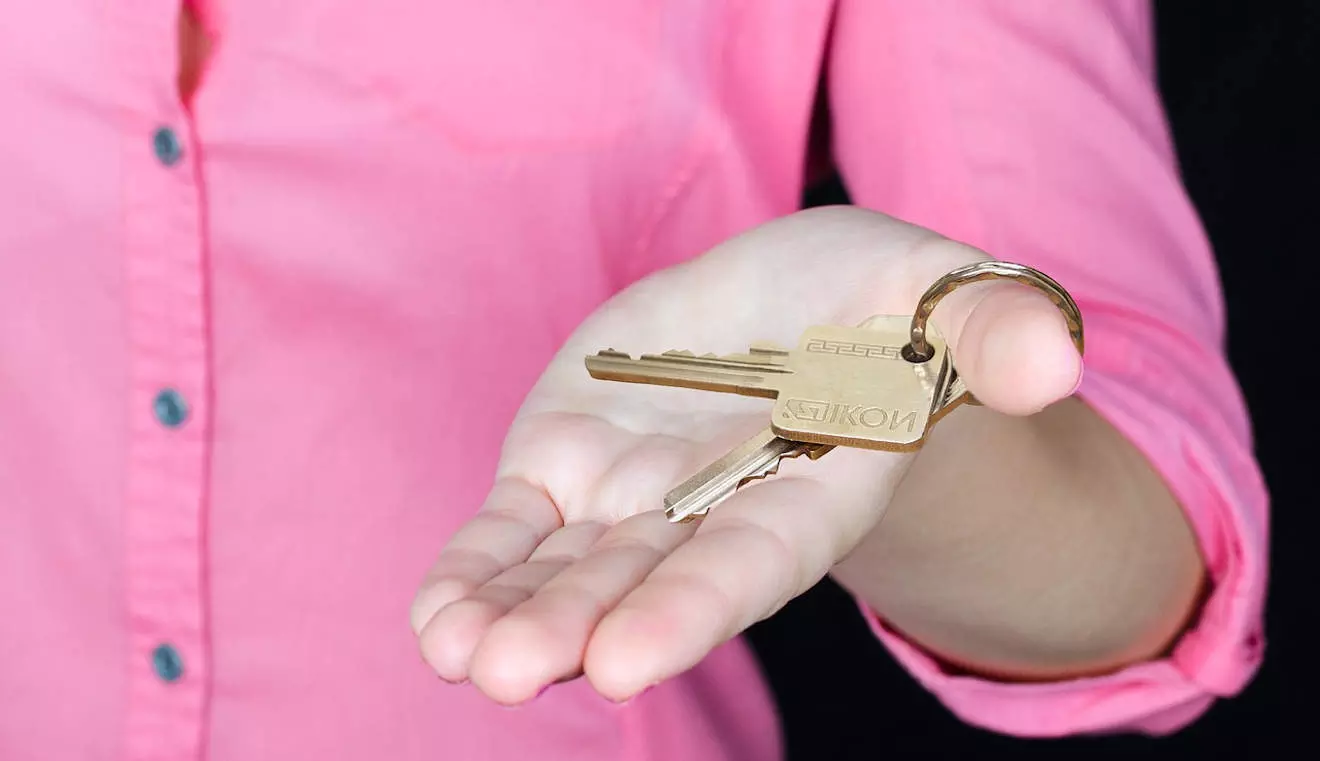
If you are looking to come to France during 2024, either to study, or to work or for a long vacation; finding a suitable house to rent is obviously going to be high on your list of priorities. Unfortunately, it is not always easy to rent a house in France on an annual or monthly basis if you are a foreigner. The French system is not geared up to help Foreign nationals renting property in France on a long term basis, especially if they have no previous financial history in France or you are not able to put down a sizeable deposit.
Whe we first came to France in 2006, it was virtually impossible to find properties that would rent long term in South France to non-French citizens. Either the Rental agencies were demanding eye-watering security deposits or we were asked to pay the whole 12 month rental fee upfront. That is why we created our own long term rental agency in France, specifically geared up for foreign clients
We have run an agency for renting property in France long term for the last 17 years. We also rented a number of houses in France when we first arrived. So we understand both the difficulties of finding and securing annual rental properties in France and we have created a business dedicated to making it easier for foreigners renting a house in France.
There are a number of options for renting property in France long term (for both furnished and unfurnished rentals), but you need to be aware of the pros and cons of each, as well as the cost implications. In addition, if you are looking to move to France for 12 months or more, then you will probably need to arrange your accommodation before your apply for your long stay visa for France (unless you are travelling on a European passport).

Timing is also critical. Often customers looking to move to France for a year, like to plan their trip well in advance, sometimes 1-2 years ahead. But we often find it difficult to pursuade Owners to accept bookings more than 3-4 months in advance (especially since Covid when a lot of customers had to cancel or postpone their trips due to travel restrictions). So I would say that the optimum time period to begin looking for a house to rent in France is about 5-6 months in advance. If you bear in mind that you cannot start to apply for your long stay visa for France until 3 months before your arrival date, then this still gives you plenty of time to get sorted for your move.
There are however some alternative ways around this if you know the system. Here we explain the 3 rental options available to you to rent a house in France long term and discuss the process for finding somewhere to rent in France for 12 months or more. We also then go on to look at your options in terms of Unfurnished rental properties vs Furnished rental properties, as weill as highlight to whole thorny issue of Principal residence in France. Finally, we then showcase some examples of annual rental properties available to rent from October 2024 and into 2025.
How to find long term rentals in France - the 3 options
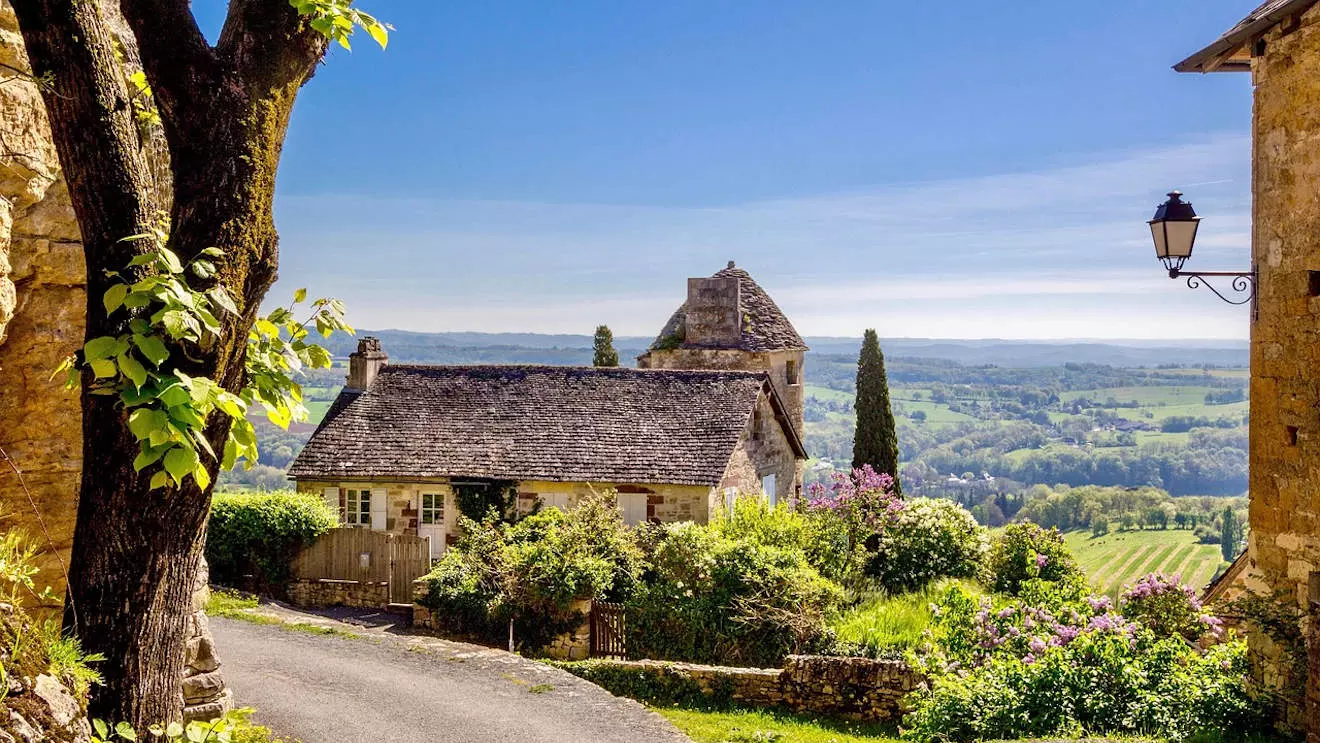
So the first question to answer is how can a visitor rent a house in France? Below I will list down the 3 main ways of finding a property to rent in France and the likely information that you will need. But firstly, I just need to cover the issue of visas. Unless you are travelling on a European passport or if your stay in France will be less than 90 days, then to live in France you are going to need a visa. For non-working people, there are 2 visa options for entering France: a short stay visa of 6 months and a long stay visa of 12 months. I always advise people to go for the 12 month visa, because it offers you more flexibility in terms of travelling in and out of France.
But here is the rub, in order to apply for a visa for France, your firstly need to arrange your accommodation. Yes, you read that right. You need to get you rental property sorted before you can apply for a visa. The process is back to front. You don't need a visa to rent a house in France, but you do need to rent a house in France to get a visa. Basically, the French authorities want to know where you will be staying during your period in France and they will sometimes want additional information from your landlord to confirm that the rental agreement is valid (see Applying for a French Visa for more information on the visa requirements).
So what to do? There are three main options available to you for finding a house to rent in France. The first involves securing a private rental property direct with a landlord. The second, involves a more complicated process of renting a house through a French Real Estate agent or through a property rental agency in France. The third option involves the simpler and more straightforward process of looking for a long term holiday rental.
Option 1: private rental houses & apartments for rent in France
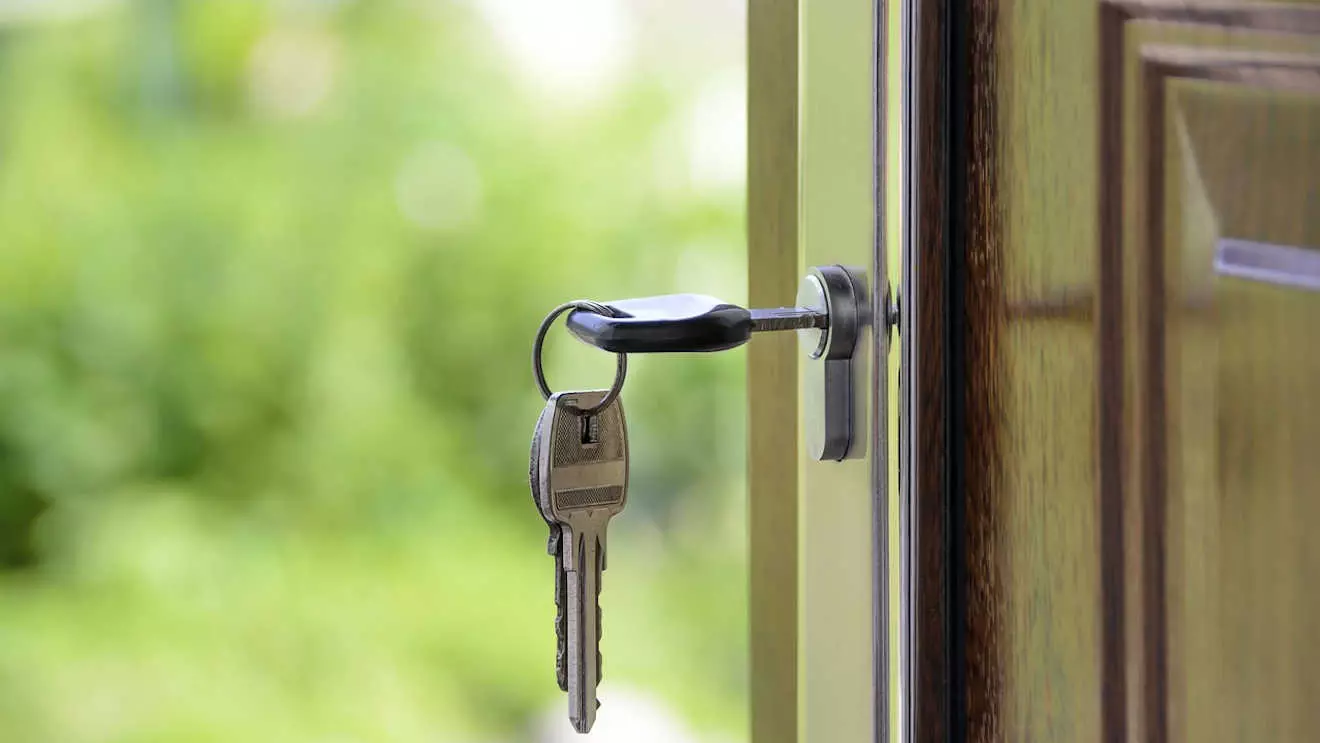 In French this is called particulier à particulier (person to person). Basically, it involves private French home owners or landlords renting their houses to tenants with no agent involved. You can normally find lots of adverts for houses to rent on such sites as www.leboncoin.fr or www.seloger.com or in local newspapers or even by seeing publicity notices hung directly on the properties themselves ("A Louer"). The main advantage of this approach is that it is normally quick to arrange the rental. You arrange a viewing, negotiate the rent and the terms, pay the deposit and the first months' rent and then you move in. It can also be cheaper because there are no management fess involved.
In French this is called particulier à particulier (person to person). Basically, it involves private French home owners or landlords renting their houses to tenants with no agent involved. You can normally find lots of adverts for houses to rent on such sites as www.leboncoin.fr or www.seloger.com or in local newspapers or even by seeing publicity notices hung directly on the properties themselves ("A Louer"). The main advantage of this approach is that it is normally quick to arrange the rental. You arrange a viewing, negotiate the rent and the terms, pay the deposit and the first months' rent and then you move in. It can also be cheaper because there are no management fess involved.
However, there are some hidden costs involved that you need to be aware of. Most private rentals use a standard French rental contract that can be bought in the local tabac (newsagent or paper shop). This is a very clear and detailed contract, but it is ideally set up for tenancy periods of 3 years. For shorter monthly rentals the terms of the contract can be quite onerous. Secondly, the French house rental system has no real concept of 'wear and tear'. You are expected at the end of the rental period to return the house to its original condition in which you found it. This will include redecorating to cover scuff marks, a full deep clean and undertaking repairs to equipment and installing replacements for accidental breakages. We once rented an apartment from French friends in our village whilst we were building our house. The washing machine was probably 10 years old when we arrived at the apartment. In the last month before we move out, the cylinder drum on the washing machine jammed up. To our amazement we had to replace the washing machine. There was no discussion with our friends. Of course we had to replace it. It was working when we arrived and now it was not, so "tant pis". We didn't buy a new washing machine, but we did have to find a suitable replacement. So just be careful.
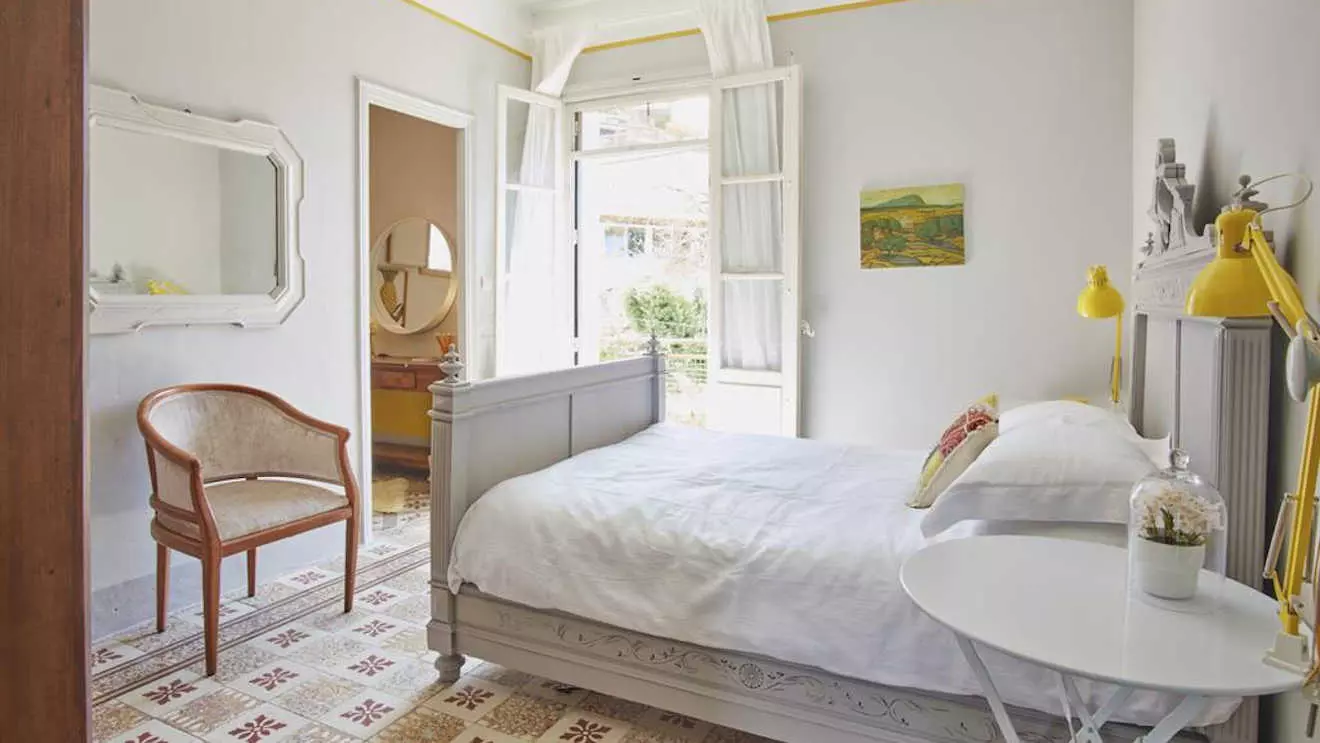
Before you start your tenancy, you will need to sign a legal document called an 'Etat des Lieux'. This is basically a very detailed inventory. You have to make sure that every mark on the floor, tear in a settee or chipped tea cup is documented fully. The Etat des Lieux can take up to 2 hours to complete. In some case, the Landlord will even arrange for a Bailiff (huissiere de justice) to come in and write the Etat de lieu. It then becomes a legal document which can be relied upon in court to settle any disputes. So if you are renting a house in France privately, just be aware that your security deposit is often viewed by the landlord as his or her compensation payment for 'wear and tear' and they will see it as their right to deduct money from the deposit.
Whilst of course it is possible to arrange a private house rental before you arrive in France, in competitive areas such as Paris you really need to be on the ground to snap up the best rentals. The other issue with this approach is that it is fine if you are fluent in French. But if you are not, then you are going to need some help with calling the landlord, setting up the viewing, discussing all the terms and reviewing the rental contract. Finally, you may find some hesitation among French landlords to rent to etrangers. They may impose higher deposits (3 months' rent) or require an advance payment of the full rent to cover the perceived higher risk that you could skip the country.
If you are looking for apartments for rent in France from a private landlord, then you can search the following websites for adverts: www.leboncoin.fr, www.seloger.com and www.logic-immo.com.
Option 2: French real estate agents
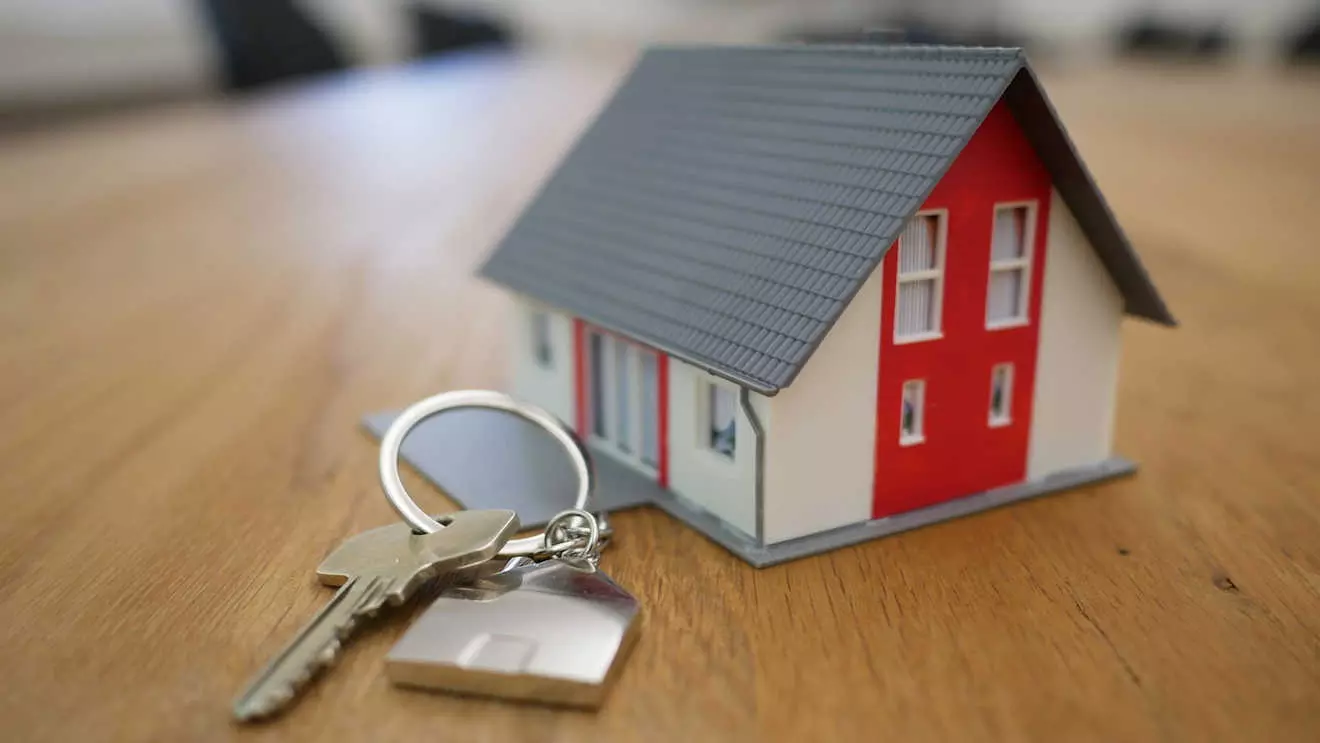
Most French real estate agents (immobiliers) also provide a rental service. They will usually charge the landlord 1 month's rent as a fee for arranging the rental and then they will normally charge a 10-15% monthly management fee. It is up to the landlord whether they pay this fee or pass it on to you in the form of higher rent. In our experience, the process of renting through a French real estate agent or letting agency can be tortuous. The standard process is that they will normally ask you to provide them with your last 3 months' French pay slips. If you have not been working in France, then you will be required to provide details of your last 3 tears' tax returns. If you have not been tax resident in France, then you are going to be in some difficulty proving that you have an income in France.
We helped two of clients find a house to rent in France through a real estate agent. In one case they were required to pay 12 months rent in advance plus 3 months' security deposit. In the other case (which was a 2 year rental), our clients had to pay 12 months' rent in advance, plus put a further 12 months' rent into an escrow account. In both cases, this was the only way the rental could be agreed. In the first case, the process took 2 months to organise; in the second case it took a full 3 months. It should also be added that in addition to the money involved, the clients also had to provide a mountain of paperwork (3 copies of each document) to prove previous residencies, legal status in France, passports marriage certificates, birth certificates, etc., etc.
Option 3: long term holiday rental in France
 If you do not have a previous financial history in France or you are not a fluent French speaker, then your best option is going to be to secure a long term holiday rental. At Long term rentals in France, we have been working in France for the last 15 years arranging such house rentals. The tenancy period is usually for 6-12 months, with a minimum stay of 3 months. For longer property rentals, a second tenancy agreement is provided once the first 12 months has expired.
If you do not have a previous financial history in France or you are not a fluent French speaker, then your best option is going to be to secure a long term holiday rental. At Long term rentals in France, we have been working in France for the last 15 years arranging such house rentals. The tenancy period is usually for 6-12 months, with a minimum stay of 3 months. For longer property rentals, a second tenancy agreement is provided once the first 12 months has expired.
We do require some financial references to be provided (to show that you are able to afford the monthly rent) - but we largely leave it down to our customers to determine what financial information best demonstrates their financial situation. So customers can provide bank statements, pension statements, employment contracts, business accounts, investment statements, or rental contracts for their own property in their home country.
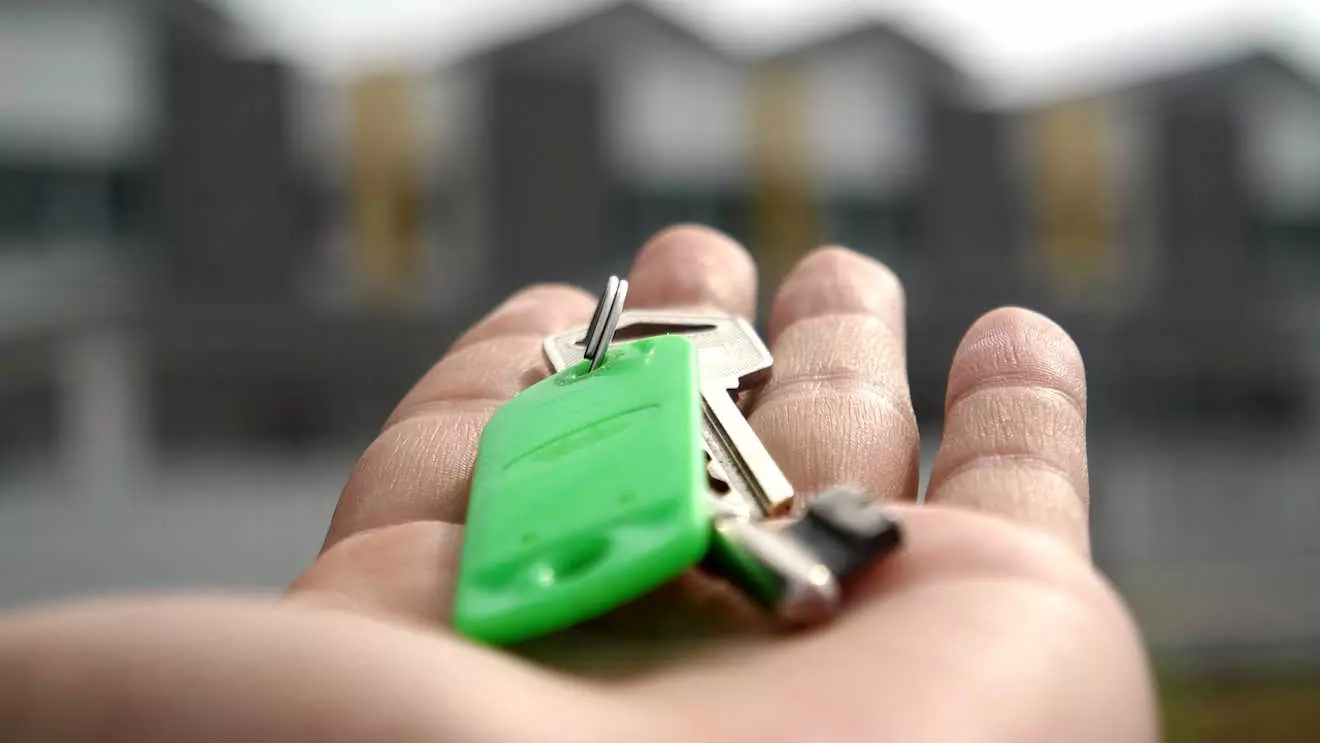
The property owner will require 1 month security deposit and normally the rent has to be paid at the start of each month. But that is it. No tax documents, payslips, school swimming certificates, inside leg measurements . . . etc, etc. We try and keep the rental process as simple as possible.
What is more, we personally inspect all of the houses for rent advertised on Long term rentals in France. This is not just for you piece of mind, but it is also for our peace of mind that the property is suitable for a long term rental. When you are looking to rent a house in France on a monthly basis you have to make sure the WiFi works, the heating is sufficient, the cooking facilities are adequate. We are also able to provide advice on the best towns and villages to rent a property in France. If you do not know the local area, then this is crucial inside information. Often the location of the house is the more important than the house itself in terms of whether you are going to enjoy your stay in France.
Most of the houses to rent on Long term rentals in France are available for monthly rentals from September through to June. We do have a number of properties which will take rentals for a full calendar year and we can advise you on which properties these are.
Principal v Secondary residence in France
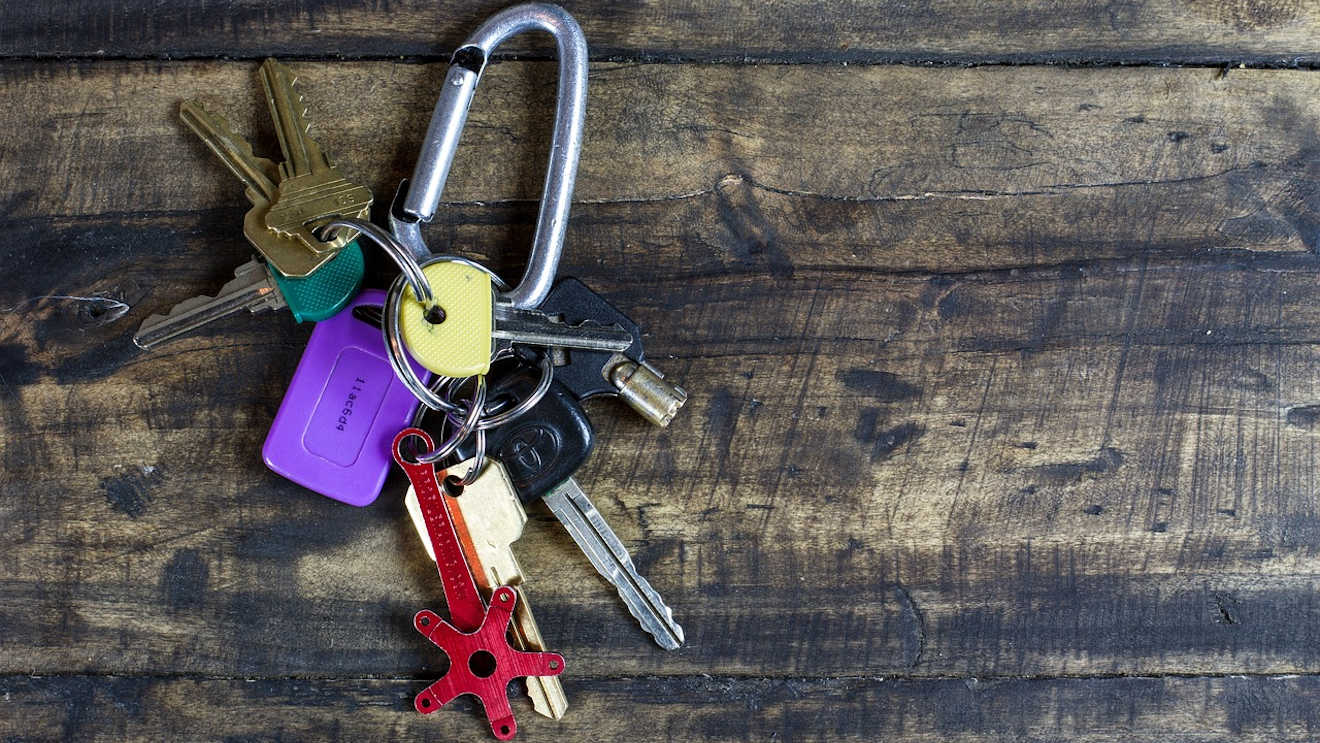
One question that we do get asked a lot, especially from clients who are looking to apply for French Residency, is that they need the rental accommodation to become their official principal residence in France. This is possible, but I firstly need to explain the difference between a principal and secondary residence.
A principal residence in France is not just your current main residence. So even if you don't own any property elsewhere in the World, it is not automatically assumed that your rental property in France will be determined to be your principal residence. The reason why the issue of principal vs secondary residence is so significant in France is down to one thing: Tax.
Since 2020 in France, the Government has begun to phase out a significant property tax (taxe d'habitation). From 2022, no French resident will pay taxe d'habitation on his/her principal residence. The tax will however remain in place for second homes. What some French citizens have been doing, is that if they own 2 properties in France, they have been transferring their principal residence on the property which has the highest taxe d'habitation to pay and making the property with the lowest taxe d'habitation their secondary residence.
In response to this situation, the French tax authorities have tightened the rules on when a property can become your residence principal. As the website Droit Finances notes:
A principal residence is the place where the tax payer usually resides and where he/she has the center of his family and professional interests. To check the veracity of the information provided by the taxpayer with several dwellings, the tax authorities can, for example, take into account their energy consumption, their place of work, their children's school, etc. in order to determine the place of his principal residence.
SOURCE: Principal residence definition
Secondly, the Capital Gains Tax in France is around 20%. This can be a significant hit when you come to sell your French property. However, you do not pay the CGT when you sell your principal residence, only if the property is a second home. So again, some French residents with 2 properties in France, will transfer their principal residence to the property that they intend to sell in the near future, thus reducing their liability to the CGT.
Rent long term France: why Principal vs Temporary residence is so important

But it is not just taxation issues that can lead some Landlords in France from declining rentals on properties where it is intended to become the tenants principal residence in France. There are also some quite significant legal issues.
As we have stated above, the French rental regulations heavily protect the rights of tenants. However, these rules only apply to rentals organised under the Loi ALUR, which are by definition, for properties which are rented on the basis of principal residency.
Just to give you an insight into how strict the French rental laws under Loi ALUR are (and why most French Landlords will say that they too heavily favour the tenant), then you just need to consider one small aspect of this law: the dreaded trêve hivernale.
Basically, in France, it is virtually impossible to evict a tenant between October to March, even if they have stopped paying the rent. Let me repeat that: even if they have stopped paying the rent. The story goes back to the 1950's and a fabulous Frenchman called Abbé Pierre. Abbé Pierre is a legend in France and he is regularly voted the most admired Frenchman. He led an incredible life. He was a French Resistance legend and during the 1950s he was a priest in the Paris suburbs. One day he found a parishioner frozen to death on the streets, clutching an eviction notice. He campaigned tirelessly to change the property law to prevent such evictions during the winter months. As noble as Abbé Pierre's intentions were (and I would encourage you to read his fascinating life history on Wikipedia), this has created a real landmine for Landlords.
We have a property on our sister site, Go Languedoc, which is now only available for holiday rentals. Previously, the Owner had rented the property to a French couple. They had paid the rent during the first year, but after that they didn't pay a cent. On the 1st April each year the Owner commenced the eviction proceedings. It took 2 months to get a court hearing date, which was then postponed by 2 months by the tenant. The Judge then decided in the favour of the Owner, but the tenants appealed the decision, until guess what? We were now into next October and the whole process stops and has to be restarted the following April. How long did this process go on for? 5 years!!! Yes 5 years without any rental income and no way of evicting the tenant. All landlords in France have heard these type of horror stories, so they are especially careful when renting property on an annual basis.
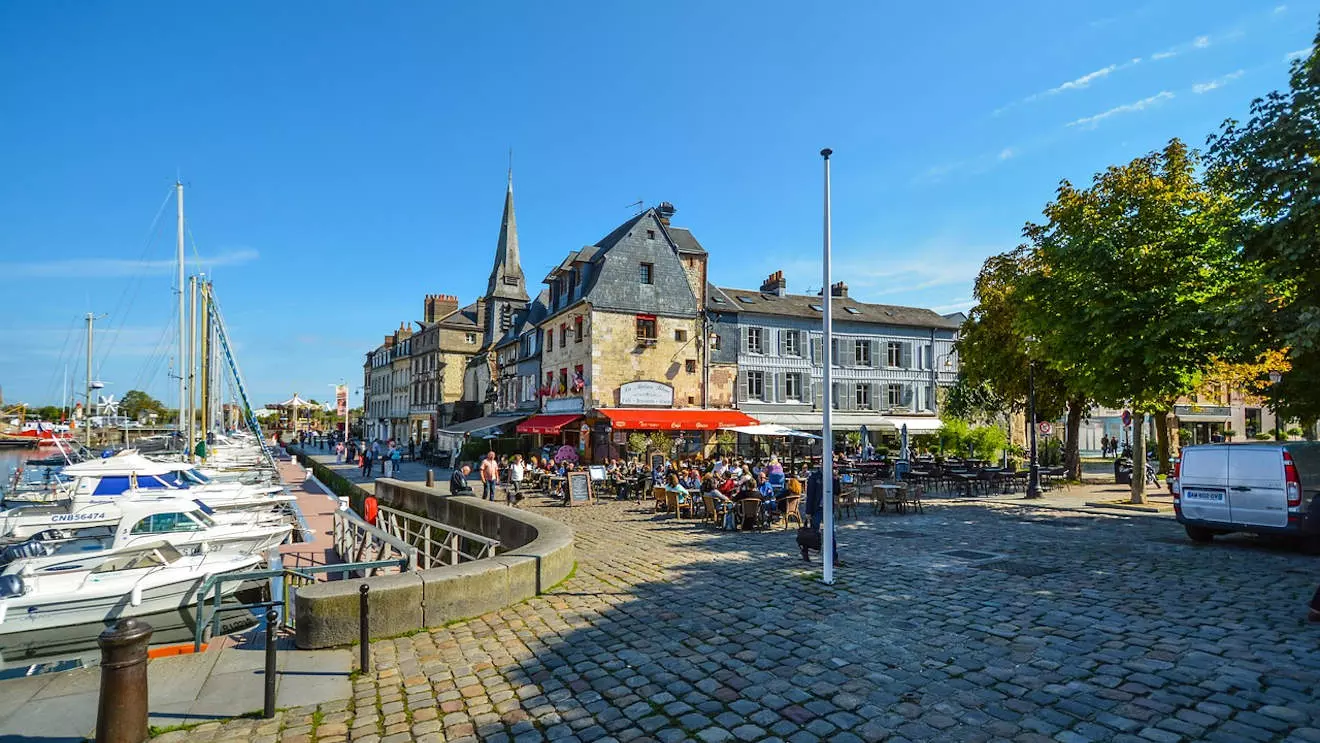
Although under French law, some regulations still apply for holiday rentals, seasonal lets and rentals which are specifically determined in the contract as secondary residences; the most significant restrictions are removed.
From a rental perspective, the legal definition of a principal residence rental is as follows:
- it is normally a property where you have been or will be staying for a minimum of 8 months
- the residence must be aligned with your place of work/business, children's schools, social life or other significant aspect of your life
- you do not envisage leaving the property in the near future (i.e., it is your permanent home)
So, in order to qualify as a principal residence the rental property needs to be rented for a minimum of 8 months and there should be an intention that the property will become your permanent home and it forms a significant part of the la vie sociale et économique (your social and economic life). In other words, the property is centered around your work, your children's' schools your local community and it is where you spend the majority of your time Monday to Friday. So there is a clear difference between a property being your main residence at the current point of time and a property being your principal residence or permanent home for the foreseeable future. Therefore, even if you sign a 12 month rental contract, the property may still not be classed as your principal residence because you anticipate leaving the property in the medium term (i.e., at the expiry of the contract).
Thus, it can often be easier to find rentals in France on the basis that it will be your secondary or temporary residence. It should also be stated that when it comes to applying for French Residency, you do not necessarily need to have a principal residence in France. So for example, to provide evidence of your justicatif à domicile, you do not need to provide your rental contract. You can instead provide
- an attestation d'herbergement signed by your Landlord, or
- a recent utility bill in your name, or
- a home insurance or Tenants Insurance policy document
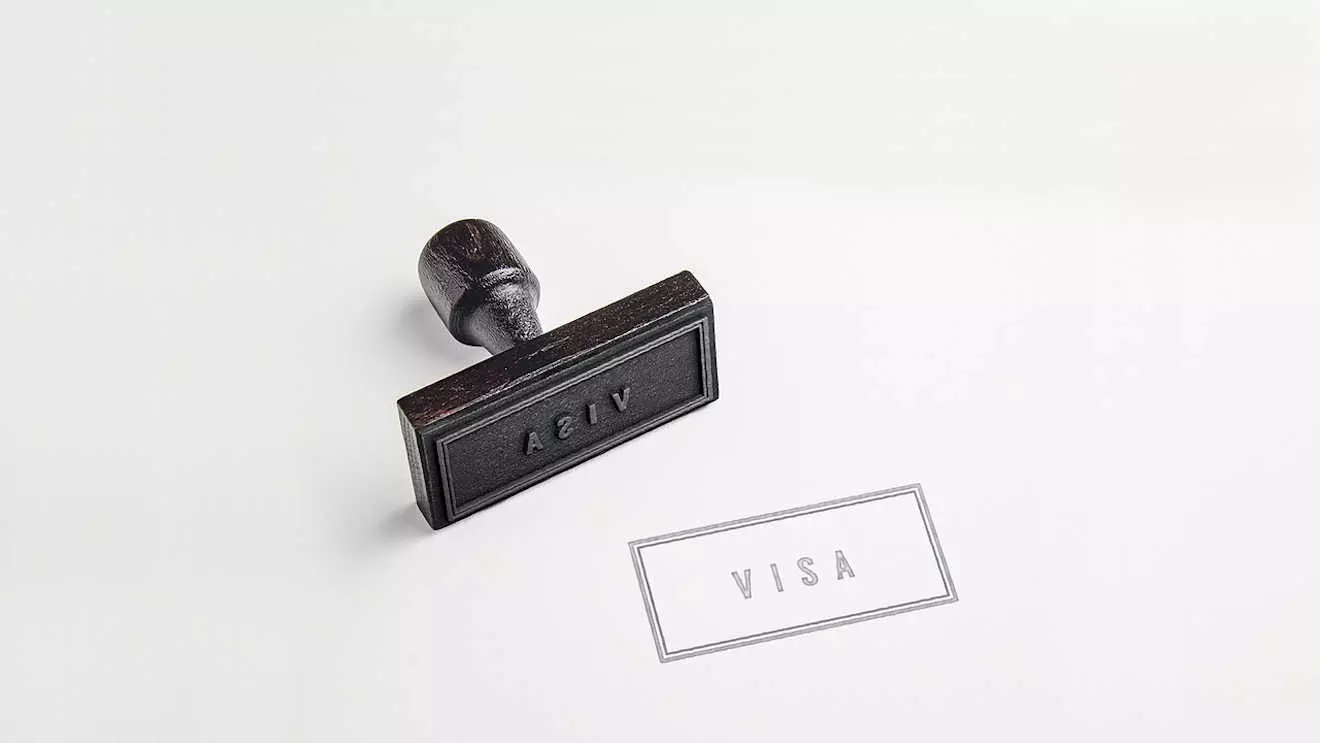
Renting a property as a secondary residence does not affect your ability to apply for French Residency or a long stay visa in France. The legal requirements for applying for residency in France are quite clear. You need to provide the following information:
- Proof of identity
- Proof of address (justificatif de domicile) - for which you can use a rental contract, utility bill in your name, home insurance policy certificate or an attestation d'herbergement (legal affidavit signed by your landlord).
- Proof of sufficient financial resources to live in France
- Proof that you have health insurance coverage
Our article Applying for French Residency covers these requirements in much more detail.
All of our rentals are provided on the basis that the property will be your secondary residence and it will not be your principal residence. There are a couple of reasons for that. The first is that the French rental system heavily protects tenants if they are renting a property as their principal residence. Most of our Owners have all heard the horror stories of tenants not paying the rent over the winter and the Landlord being unable to evict them. They are also aware of the 11 separate house reports that they need to provide to rental tenants (from electrical conformity to flooding risk to lead pipes and energy efficiency), all of which can add up to €3,000 to arrange.
I will briefly just look at some of the differences between renting an unfurnished property in France against a furnished property. It should be noted that there are often cultural differences between countries about what constitutes an unfurnished property and also the standard of fixtures in a furnished property. So don't always assume that what you are used to in your home country will also apply in France.
Unfurnished annual rental property France
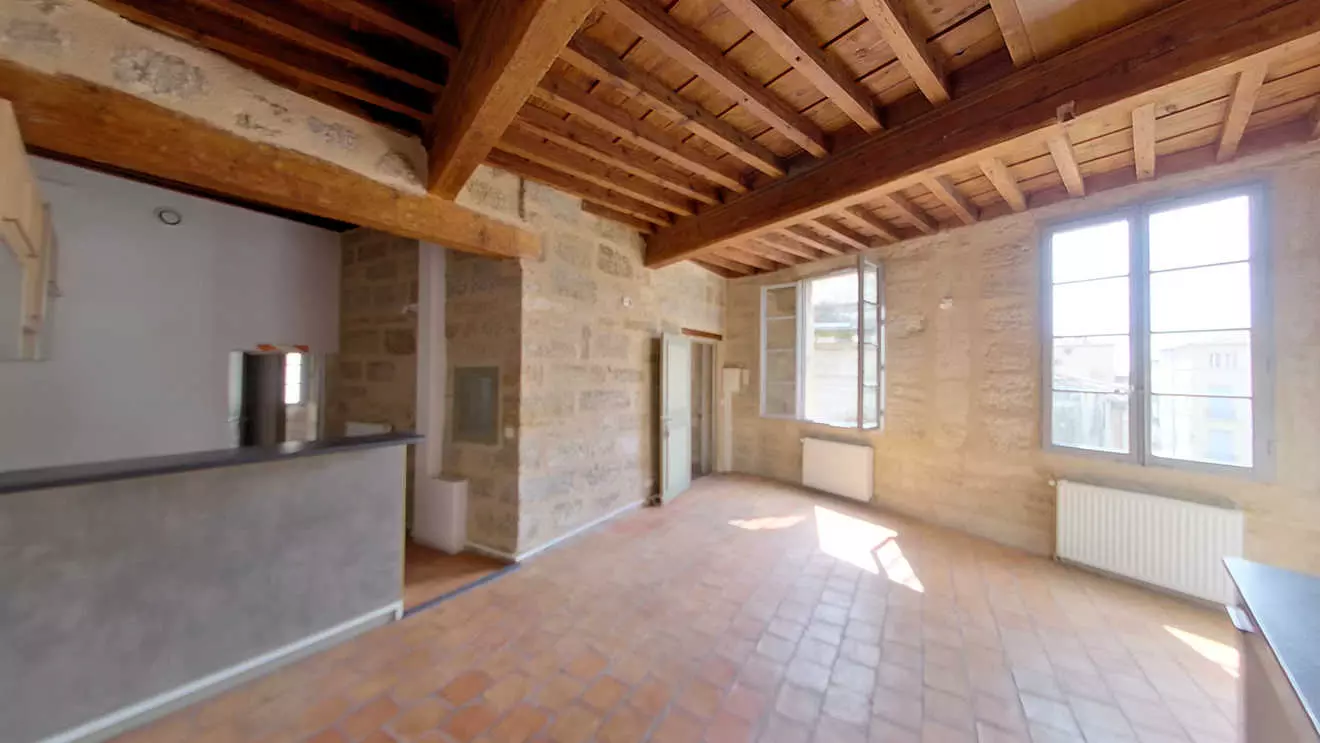
The most common property rental contract in France is for unfurnished rentals of 3 years. The rental contract is called Contract Location or du Colocation de logement and it runs to over 30 pages including annexes!!!
An unfurnished rental property in France is normally just a bare property without a fridge, washing machine, oven or even light bulbs. The law in France is very much on the side of the tenant.
We do try and help clients find rental properties in France, but generally we limit our rental contracts to 12 months and under (for legal reasons). If you are looking to rent for 2-3 years, the process in France can be quite trick, especially if you don't have any financial history in France.
There is a good friend of ours here in Pezenas, France, who was looking to rent an unfurnished villa on annual basis covering an 18 month to 2 year period. We were able to find a suitable rental property for her and it just so happens that we knew the Real Estate agent very well and we were able to personally vouch for our friend. So you would imagine that the rental process was quite smooth. Not a chance.
From start to finish it took 2 whole months just to complete all the paperwork. Our friend had to provide French translations of her birth certificate, her company partnership agreement, a letter of reference from 2 previous landlords, copies of banks statements from the previous 18 months and a letter of recommendation from her French bank Manager. I am not making any of this up by the way, but it goes on!!! She also had to pay 1 years rent up front (with no rental reduction), she had to pay a 2 month security deposit and she had to place the 2nd year's rent into an escrow account. It was only then that she got hold of the keys to the property.
So you will see, it is very difficult to rent an unfurnished property on an annual basis in France. If you are a Foreigner, with no bank records or income in France, then it could be virtually impossible to arrange prior to your arrival. You would need to be on the ground in France for at least a month, as well as having sufficient funds to provide the necessary financial guarantees. So what are the alternatives?
Furnished annual rentals in France
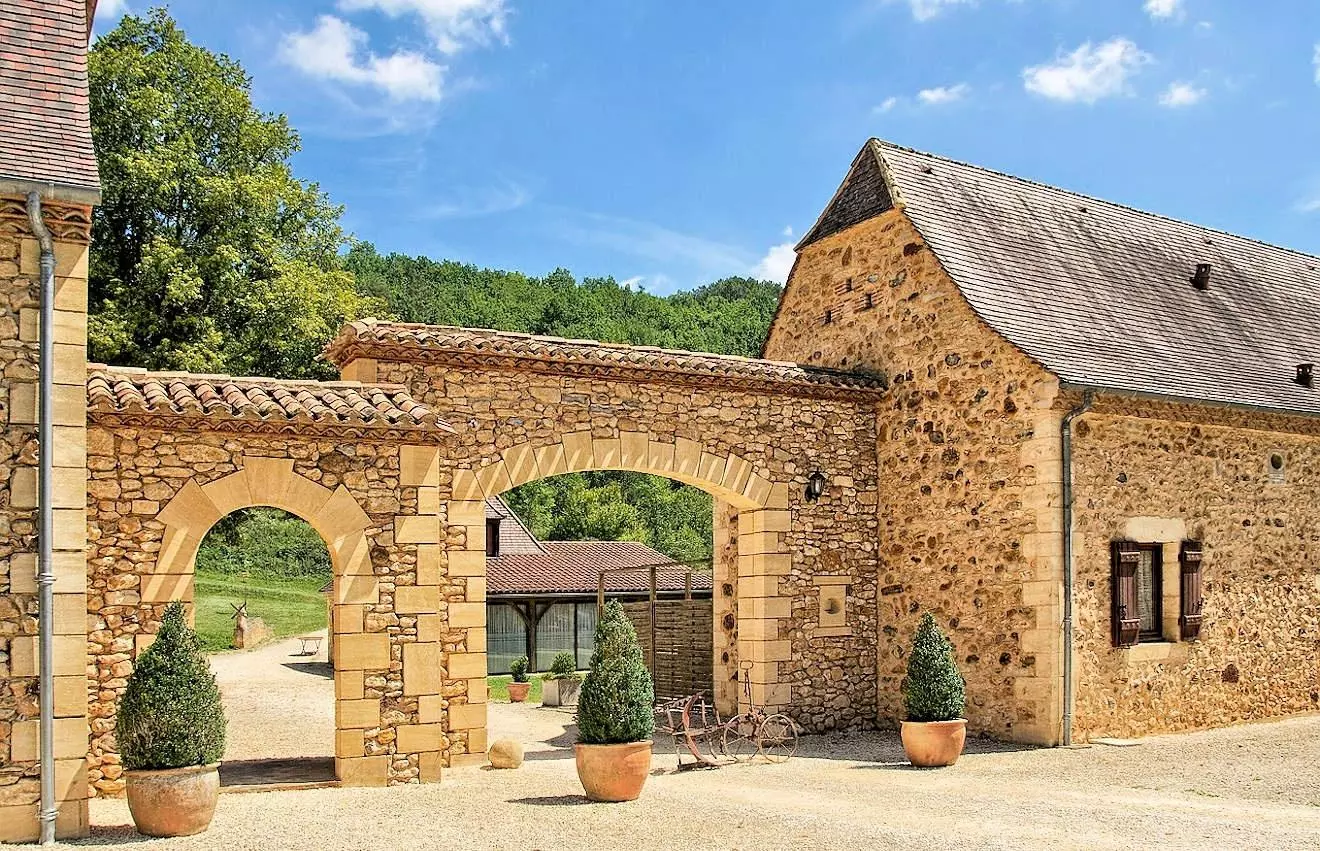
It is possible to find furnished annual rental properties in France, but by law the rental contract is for 12 months. The contract is then renewable on a yearly basis, under the same terms as agreed for the first 12 months (apart from any approved rental increase). Most furnished rental apartments and houses in France will be quite bare. The Law requires just that the property comes with a bed with bedding, shutters or curtains in the bedroom, a stove top or hotplates, an oven or Micro-wave, a refrigerator, a freezer or freezer compartment that freezes to -6°C or less, sufficient tableware, cooking utensils, a table & chairs, shelves, lighting and housecleaning equipment such as a vacuum, broom or mop. Normally that is the minimum and maximum that you will find in the property. Most of our furnished annual rental properties on Long term rentals in France are much more comfortably furnished than this, but this is not the norm in France.
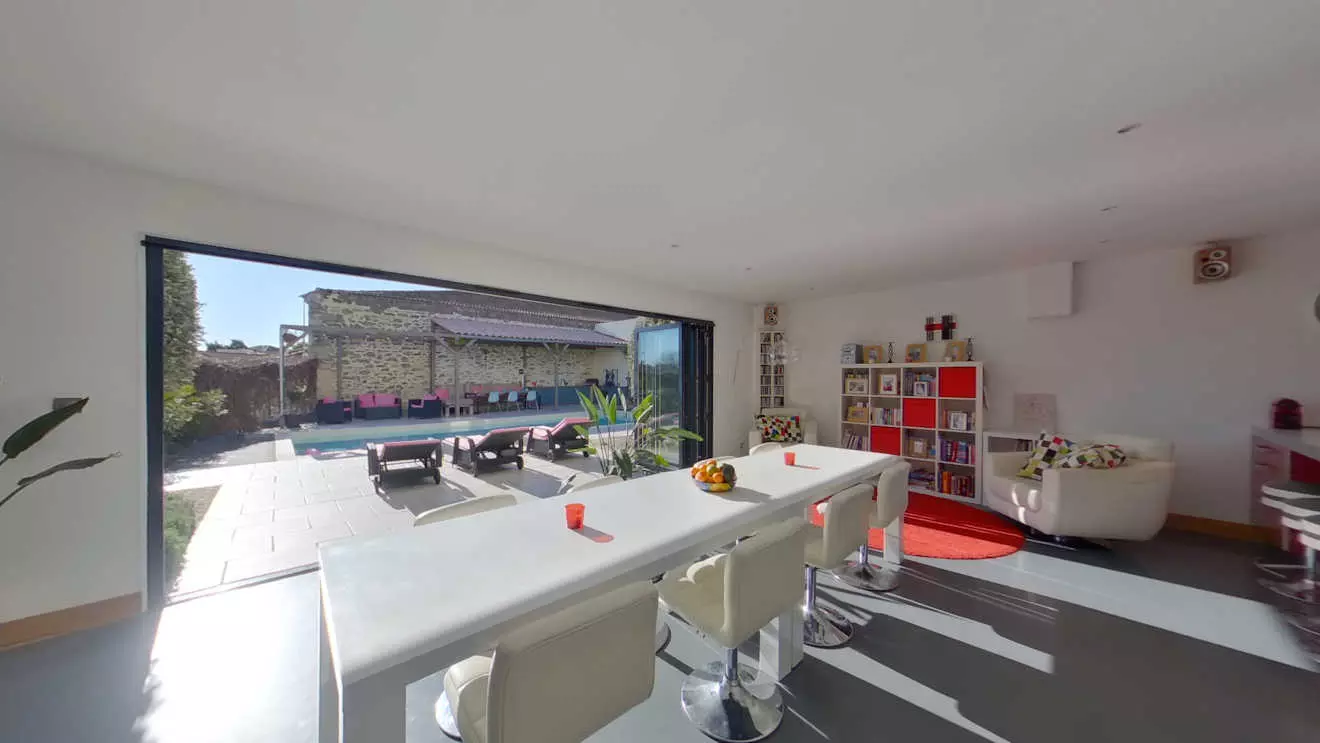
In terms of the Furnished annual rental contract, you would be expected to pay 2 months security deposit, pay the rent in advance each month, as well as pay an agreed provision for utility bills (unless these are transferred into your name). You will also need to take out house insurance and provide evidence of this. You will also be liable for paying a proportion of the taxe d'habitation, which is a local community charge to pay for garbage collection, street lighting and the local town poop-a-scooper! On average you should expect to pay
- in the range of €450-€800 per year for the taxe d'habitation (depending on the size of the property and the local area).
- €80-120 per month for electricity,
- €50-70 per month for water and
- €30-50 per month for telephone and internet.
Currently available annual rental properties in France

Annual rentals France - current availability |
To rent a furnished rental property in France on an annual basis, we have tried where possible to make the process much more simpler. For our rental properties, we will require a copy of your identity papers (passport copy and or visa), a letter of reference from your current landlord or person in a respected community position and some proof of ability to pay the rent (letter from your bank, employment contract or copy of your bank statement). Usually the process can be completed within 3-5 days, including signing the rental contract. Most of our Property Owners will accept a 1 month security deposit, provided that you take out either travel insurance or house insurance. The rental contract that we provide is perfectly acceptable by banks for opening bank accounts, for schools for registering pupils and for the various utility companies (EDF for electricity, Orange for Mobile and Fixed phone lines, Internet providers, etc).
To give you an idea of the type of property available for annual rental in South France and what you would be expecting to pay per month, I have included a selection of properties currently available for rent on Long term rentals in France:
Provence - rent long term France

Provence is always a popular location for long term rentals in France. But due to the high rates that rental properties can attract during the summer season, it is often very difficult to find houses that will rent on an annual basis. Often landlords can receive twice the off-season monthly rent per week during July and August. However, there are some landlords that prefer for the houses to be occupied all year around, without the hassle of weekly changeovers during the summer.
These properties in Provence are currently available for rental periods of up to 12 months during 2024-2025:
Provence Stone Farmhouse to rent in France long term (Ref: 2066)
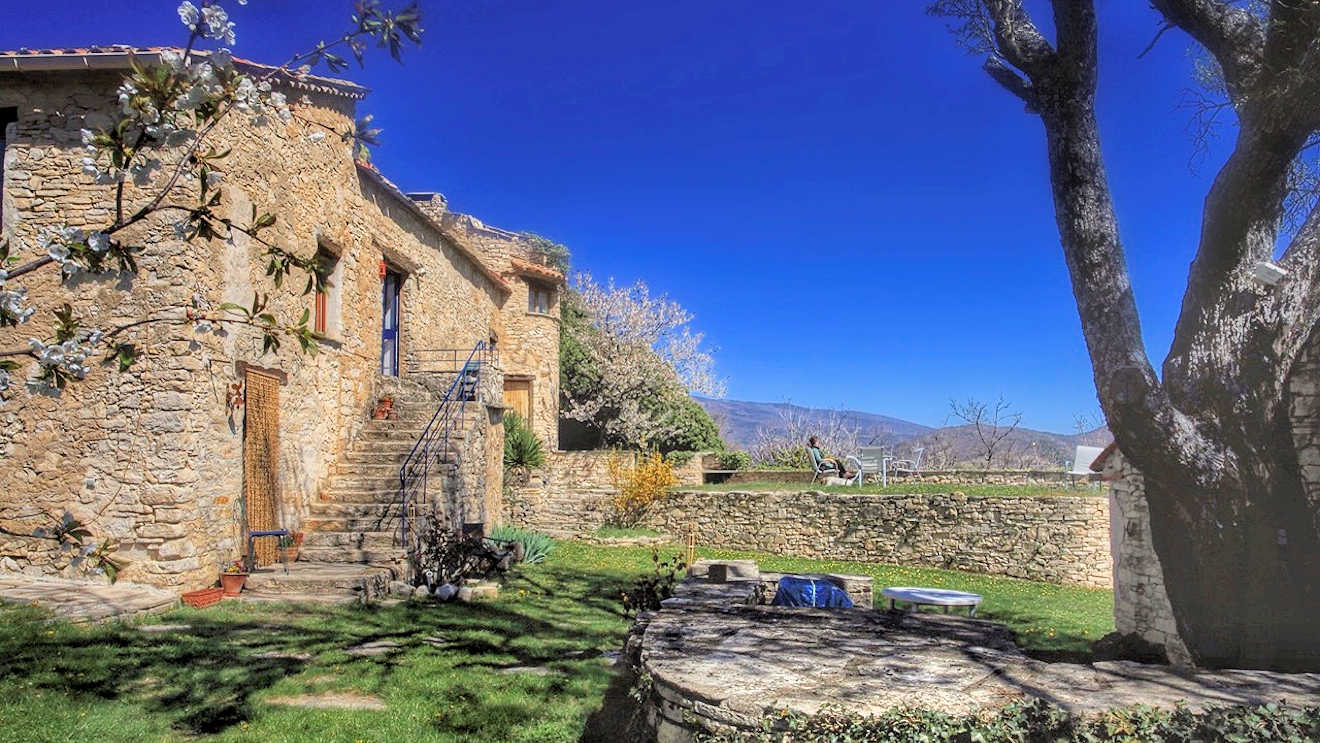
You can rent this farmhouse in France on a long term basis between October to May. Set in over 30 hectares of natural Parkland and accessed by its own country track, This farmhouse in Provence offers a unique experience of French country living. The property is remote and access to the farmhouse is along an unmade track. The town of Forcalquier is nearby, but this rental will ideally suit somebody who wants an off-the-grid living experience in Provence, but with all the creature comforts of modern life. You will simply arrive and not want to leave.
- 3 bedrooms
- 2 bathrooms / shower rooms
- Private pool & garden
- 30 mins to Aix-en-Provence
- 15 mins from 18 hole golf course (Golf du Luberon)
- Wi-Fi.
- Central heating
This Provence rental property is an ideal base whether house hunting or on an extended holiday. The farmhouse is available for long term rent from October 2024 from €2000-€2500 pcm + bills.
L'Horizon - Provence long term rental apartment France (Ref: 1984)
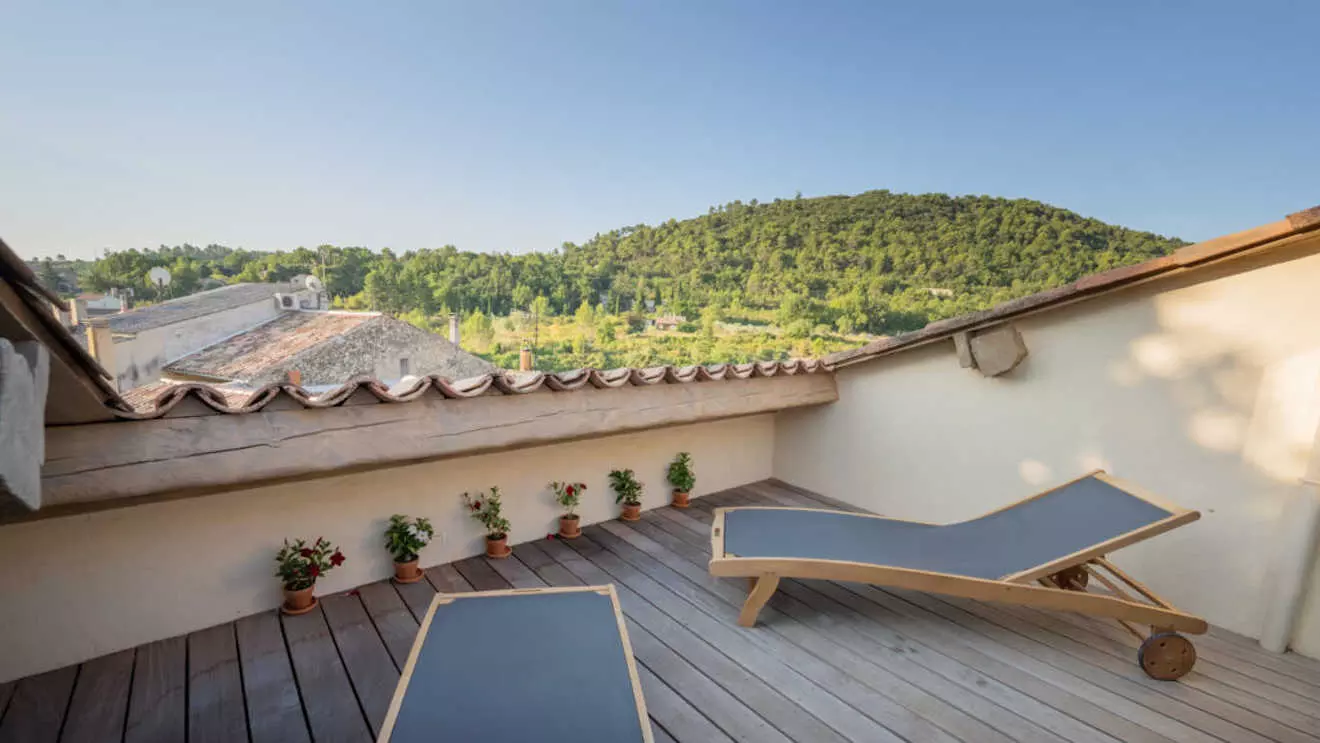
L´Horizon apartment for long term rentals is located in the beautiful village of Beaumont-de-Pertuis in Provence, France. This bright and beautiful top floor apartment features a private terrace with stunning views. The village of Beaumont-de-Pertuis is located on the edge of the Luberon National Park (an area of Outstanding Natural Beauty) and is just 40 mins from Aix-en-Provence. Marseille airport is 50 mins and the French Riviera coast is just over 1 hour.
The property comes with:
- 1 bedroom
- 1 bathroom
- Ideal for exploring Provence
- Lovely roof terrace
- 40 mins from Aix-en-Provence
- Washing machine
- Fully-equipped kitchen
The L´Horizon apartment is available for long term rental in France, Provence between October to May from €1150 per month + bills. There is a monthly provision of €150 towards the electricity, water, internet and communal taxes. For 12 month long term rental prices, please enquire. Please note that higher rates will apply during June to September.
Puyloubier - 3 bed house for rent near Aix-en-Provence France (Ref: 2064)
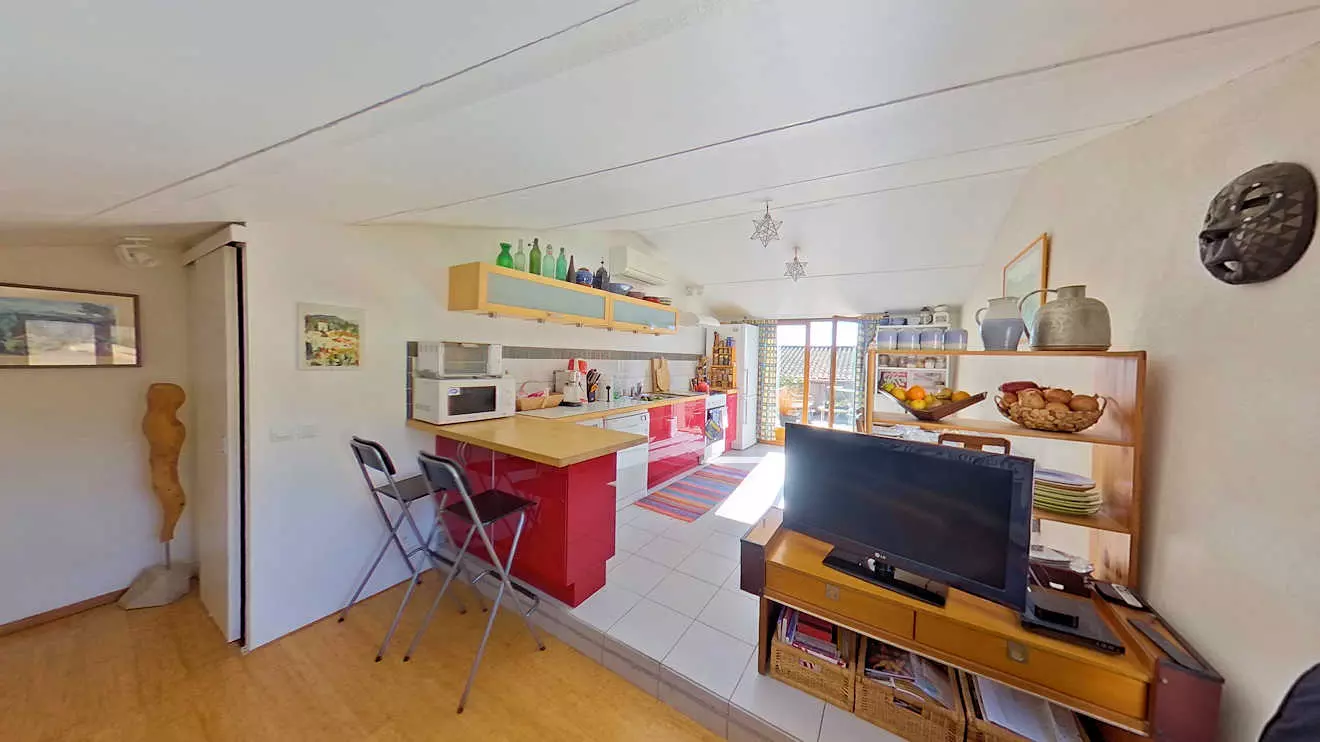
This 3 bed house in the heart of Provence, is perfect for a long term rental in France. Inside, the house has been finished to a good standard and still retains its charm. The stairs down to the two guest bedrooms are quite steep, but there is a hand rail and anti-slip treads. The staircase up to the lounge and kitchen is a standard staircase.
The Owners' have a local English-speaking property manager, who can resolve any issues with the house and provide advice on places to visit and local services.
Puyloubier is a popular village and is just a few minutes drive to the centre of Aix-en-Provence. The village is located at the foot of Mont Sainte Victoire, a beautiful mountain immortalized in the paintings of Paul Cézanne.
- 3 bedrooms
- 2 bathrooms
- Well-equipped kitchen
- WiFi and flat screen TV
- Shared terrace
- Walking distance to shops and restaurants
This comfortable 3 bed cottage near Aix-en-Provence provides excellent accommodation for a couple, with enough space for visits from friends and family. Puyloubier is a lovely village - very friendly and with a good range of local services.
House for long term rentals in Aix en Provence France (Ref: 1699)
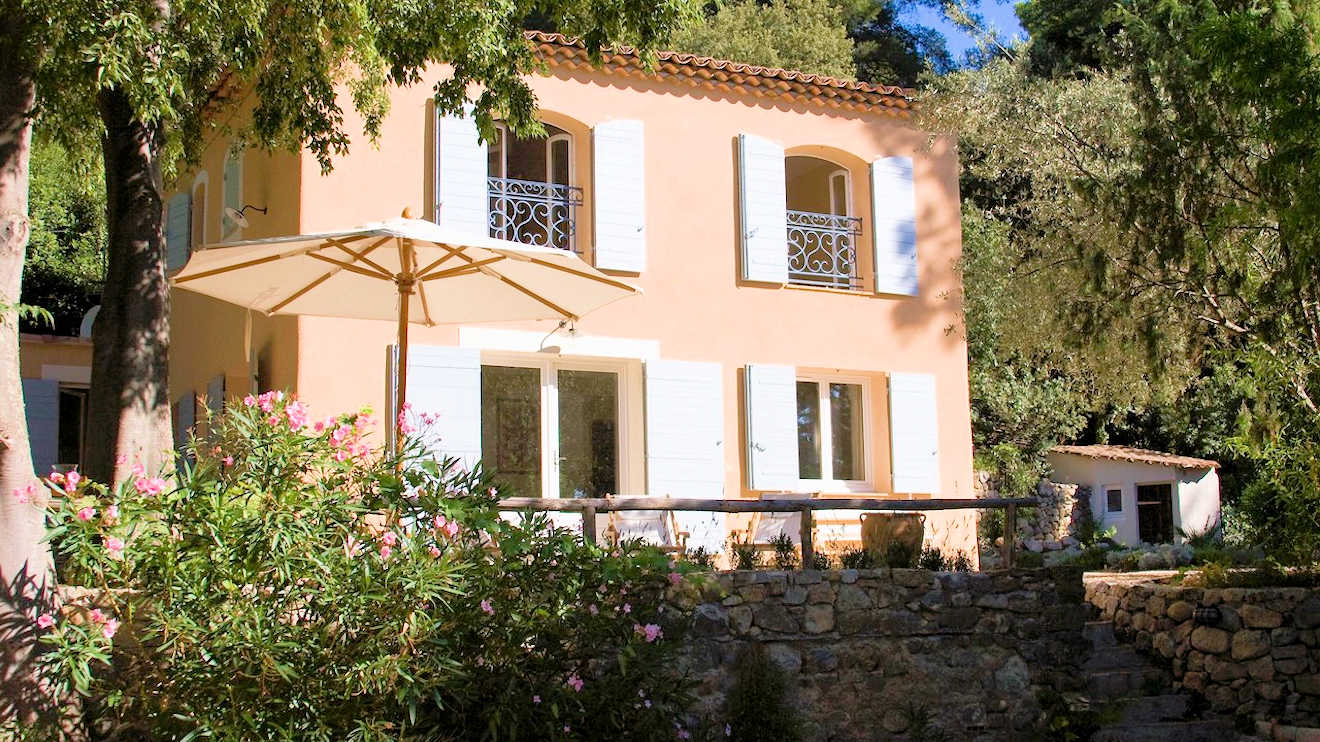
Aix-en-Provence is a fantastic place to find a long term rentals in France. This vibrant University town in South of France is full of life all year around and you will be able to enjoy the many festivals and events that take place during the year. This well-equipped 3 bedroom house is situated in a leafy neighbourhood of Aix, just 10 mins from the town centre. The house comes with WiFi, central heating, 2 bathrooms, terrace with outdoor dining area and a private garden. This house in Aix-en-Provence comes with:
- 3 bedrooms
- 2 bathrooms
- Air conditioning
- Well-equipped kitchen
- Private parking
- High speed WiFi and flat screen TV
The house in Aix-en-Provence is available for long term rentals from mid-August 2024 for rentals up to 1 year from €3,000 per month + bills.
Cote d'Azur - renting property in France long term

In a similar way to the rental properties in Provence, the summer holiday rental market in Cote d'Azur is especially buoyant - which makes it difficult to find properties that will rent for a full 12 months. Often the rental rates you will have to pay will include a summer premium to replace the potential lost income from Airbnb/Vacation rentals. Also, locations close to Cannes (such as Antibes, Biot and Mandelieu), will also be able to attract higher rates throughout the year due to the major events that take place at the Palais des Congrès (such as the Cannes film festival, MIPIM, MIPTV, and MAPIC). In short, if you are looking to rent anywhere on the Cote d'Azur for a full 12 months, then it is going to be expensive.
These Cote d'Azur rental properties are currently available for monthly rental periods of up to 12 months:
La Réserve 3 bed house long term rentals Nice France (Ref: 2162)
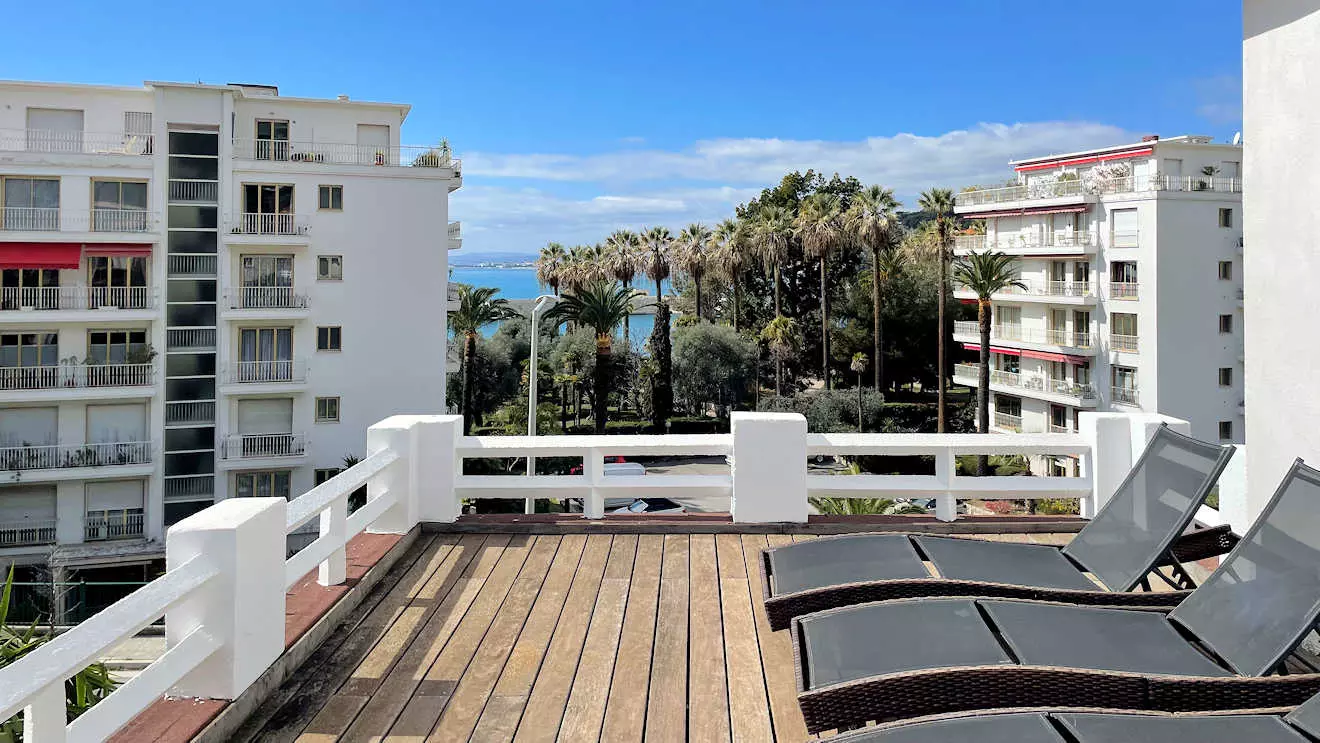
This long term rental house is located in a perfect spot close to the centre of Nice. The house provides easy access to the beach and port area and also has quick transport links into the city centre. The port area is a very calm and family friendly neighbourhood, with numerous restaurants.
La Réserve is a lovely 3 bedroom semi-detached house for long term rentals, located on a small private estate and comes with lovely views down to the sea from the roof terrace. The house has 3 bedrooms, 2 bathrooms, a garden, balcony, roof terrace, Jacuzzi and parking for 2 cars.
From the house, you can walk down to a number of lovely coastal restaurants, including the elegant 19th Century restaurant, La Réserve de Nice. There are also 3 bus stops within 2-3 minutes walk of the house.
This house is available for long term rentals from September 2024 and can either be rented as a furnished or unfurnished property. The monthly rental price is €3,300 euros + bills per month. The property is available for rentals of up to 2-3 years.
Vence 2 bed apartment long term rent near Nice France (Ref: 1935)
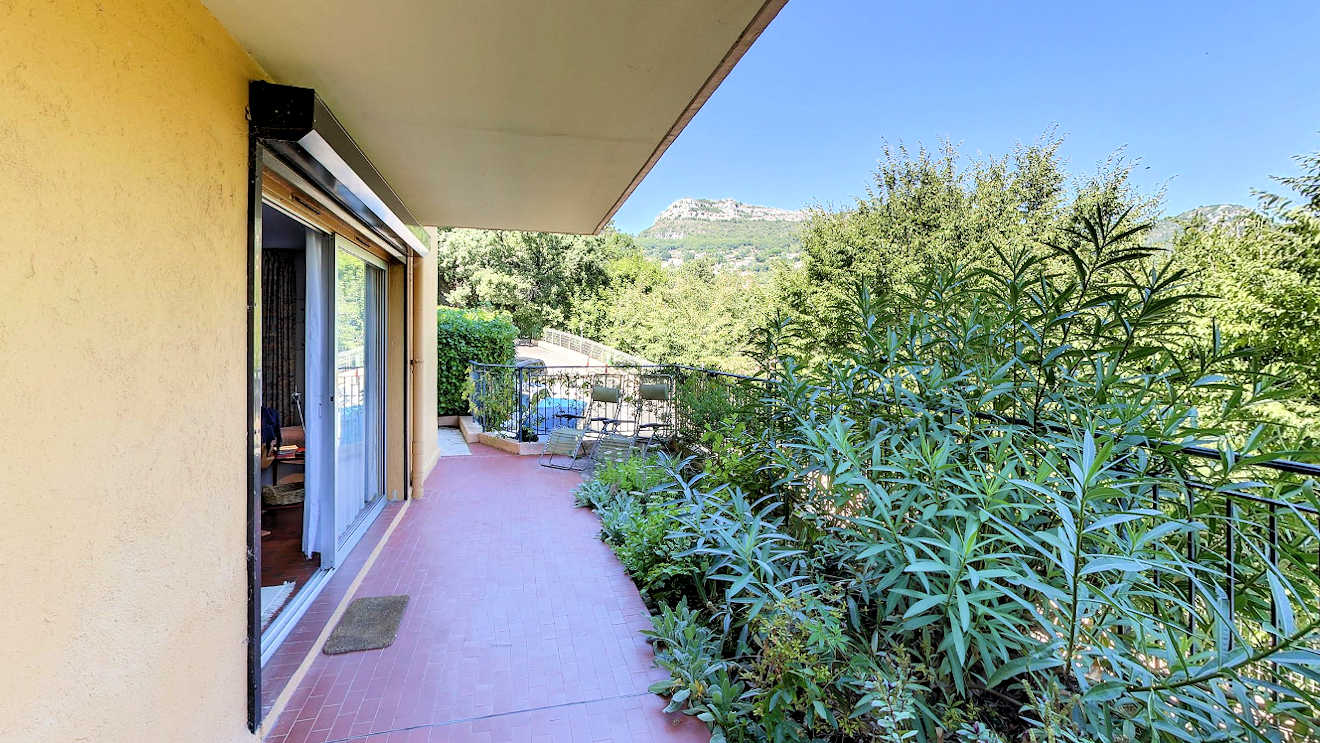
This spacious 2 bed apartment in Vence, South France, is available for rentals of up to 12 months. The apartment comes with a large terrace where you can enjoy the stunning views across the valley to the Alps. The apartment is ideally set up for remote working (with a fast fibre internet connection) and also works well for guests with reduced mobility.
Best features: easy access to shops, restaurants and the fabulous weekly market. Safe and secure apartment building. Vence is a beautiful old town with a good range of facilities. Nice airport close-by and the beaches are 20 mins by bus or car.
Key features: 2 bedrooms, 1 bathroom, spacious living room, large terrace, garage, fast internet, elevator access.
Location: Vence, Cote d'Azur. Nice airport 15 km, Cannes 30 km, beaches 20 mins.
Rental price: For annual rentals of 12 months, the rental price is €1500 per month + bills. For shorter rental periods, the apartment is available for €1000 per month + bills during October to April and €2000 per month + bills between May to September.
Minimum rental period: 3 months
Available from: 1 January 2024
Apartment for long term rentals near Menton France (Ref: 1918)

A bright and airy 2 bed apartment close to Menton on the Cote d'Azur. The apartment comes with a terrace and enjoys nice views down to the coast.
Location: Castellar, Cote d'Azur. Menton 6km, Monaco 14km, Cap-Ferrat and Beaulieu-sur-Mer 26km, and Nice 30km.
Key features: 2 bedrooms, 1 bathroom, large living room, terrace.
Best feature: stunning hilltop village with views over the Cote d'Azur. You gain the comfort of a small village community, without all the hustle and bustle. Yet the Cote d'Azur is just 6 km down the hill.
Price: from €800 per month + bills (monthly provision of €200)
Minimum rental period: 6 months
Available from: 1 January 2024
Cannes property for long term rentals France (Ref: 1433)
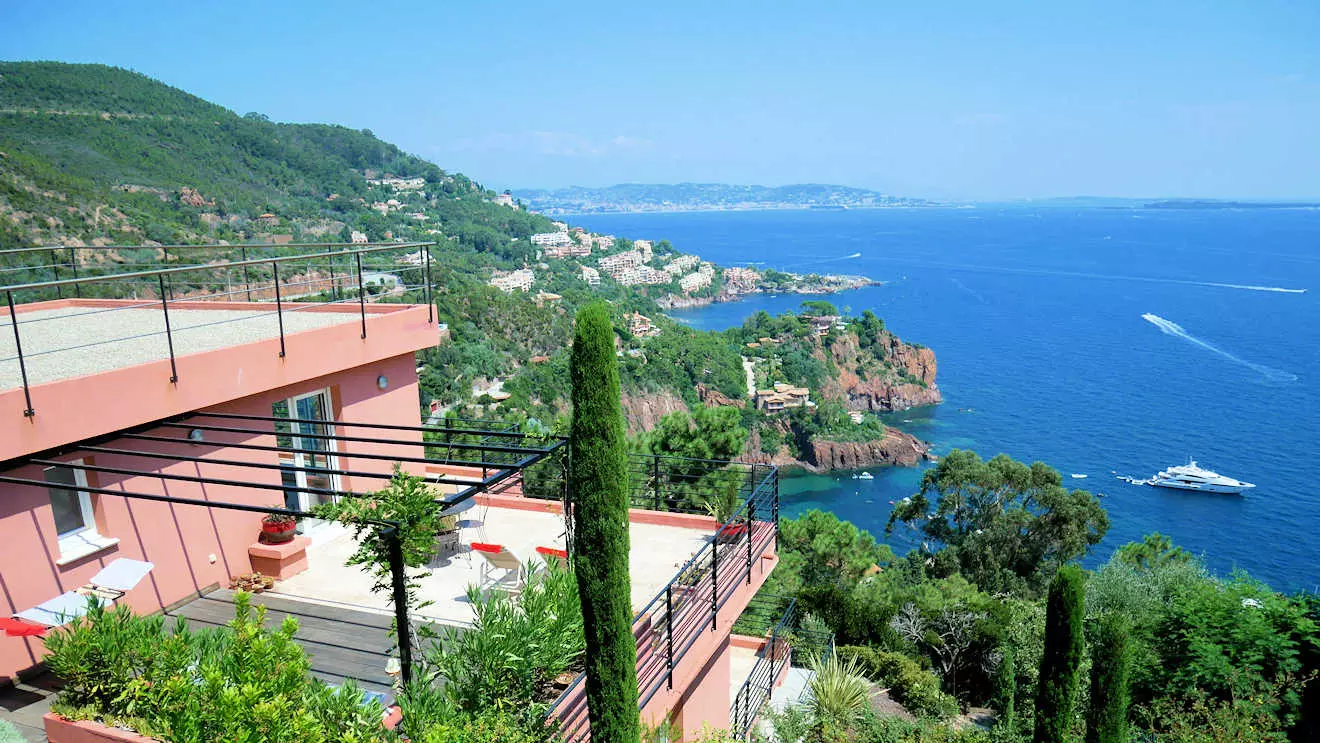
This villa for monthly property rentals near Cannes, South France, comes with stunning sea views, 3 terraces and an infinity swimming pool. The villa is located only a short walk from sandy beaches and is close to the centre of Theoule-sur-Mer village, with its numerous shops and restaurants. This private villa in South France near Cannes is spread over four floors and comes with:
- 4 double bedrooms
- A private lift to all floors
- Air conditioning
- Private off-road parking
- WiFi internet.
The villa is situated in a quiet residential area on a hillside overlooking the Mediterranean sea and the Bay of Cannes. Just next door there is the iconic Pierre Cardin "Bubble House". This villa in Theoule-sur-Mer near Cannes is the perfect place for monthly property rentals for corporate clients attending the many conferences in Cannes. Rental prices start from €4000 pcm.
Languedoc long term rentals France
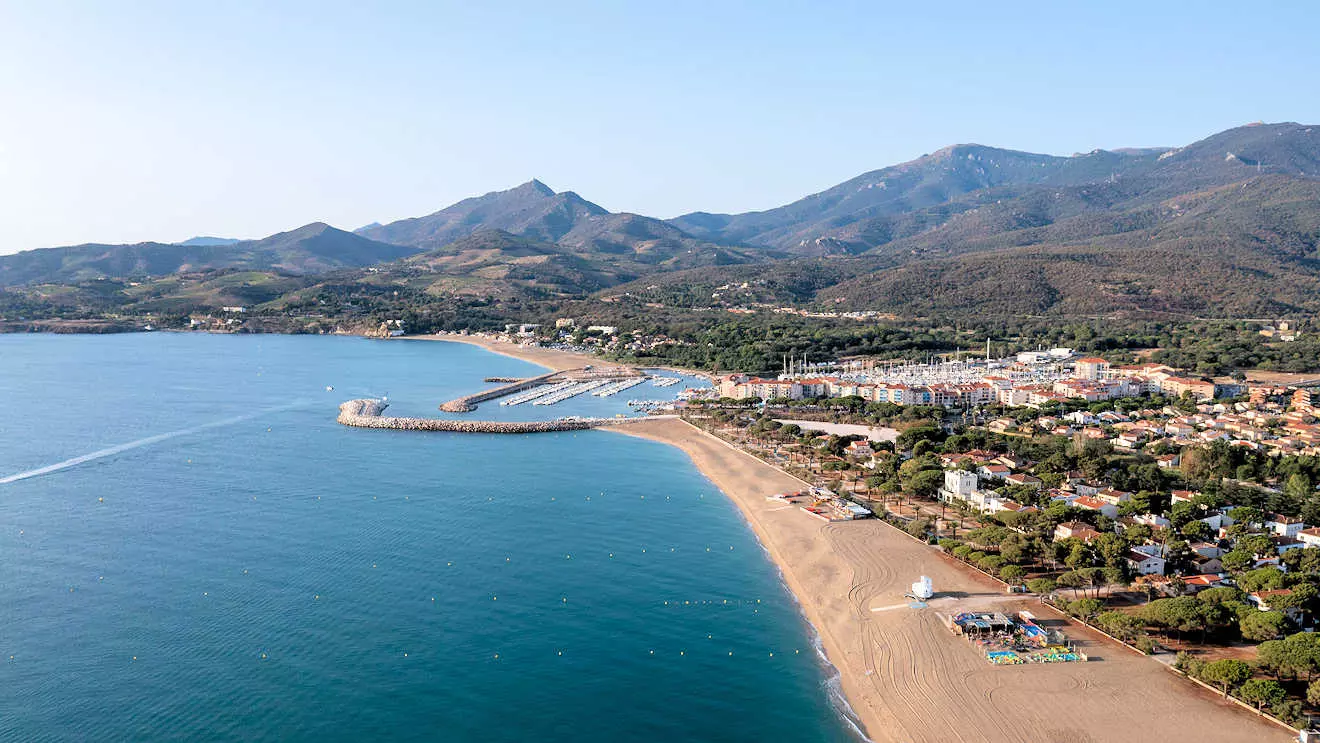
The old Languedoc region in South France is a much more affordable place to live in France, compared to its neighbouring regions of Provence and Cote d'Azur. Typically, houses for long term rent in the Languedoc will by 50-60% cheaper than in Provence and certainly in Cote d'Azur. If you aim is to rent a property in France along the Mediterranean coast, then the Languedoc should be where you should start looking.
The Languedoc is also home to some dynamic cities, like Montpellier, as well as provincial towns such as Beziers, Narbonne, Nimes and Perpignan, which have excellent transport connections (with TGV train stations, local airports and motorways running nearby). You will also find some beautiful small town gems, such as the stunning medieval towns of Uzés, Sommieres, Pezenas, Marseillan, Lagrasse, Ceret and Collioure.
The Languedoc has some of the most sunniest cities in France (with over 2,000 hours of sunshine per year); it has over 200 km of coastline and features 108 blue flag beaches (the European standard for clean beaches); it is the second most visited region in France for tourism (after Provence-Cote-d'Azur); it is largest wine producing area in France (accounting for 36% of all the wine produced in France); and it has developed a flourishing local economy for renewable energy (hydroelectricity, wind power, solar power) and organic food production.
Annual rental properties in Pezenas

Pezenas is a great location for a 1 to 2 year rental period. Pezenas is located 25 mins from the Mediterranean coast, in between the cities of Montpellier and Beziers in the old Languedoc region. Pezenas was formerly the capital of the Languedoc province and it retains some beautiful historic buildings dating back 500 years. Unlike some locations in South France, you can always find something going on in Pezenas all year around (especially festivals related to the French playwright, Moliere, who spent some years living in the town).
The town has a good range of services - supermarkets, schools, shops, sports facilities, restaurants, etc - and the Saturday market takes over the whole town. Pezenas is also an important centre for antique dealers (there are 35 Antiques shops in the town), as well as wine production.
All of these properties in Pezenas will consider annual rentals:
La Cour - Pezenas long term rental property France (Ref: 2023)
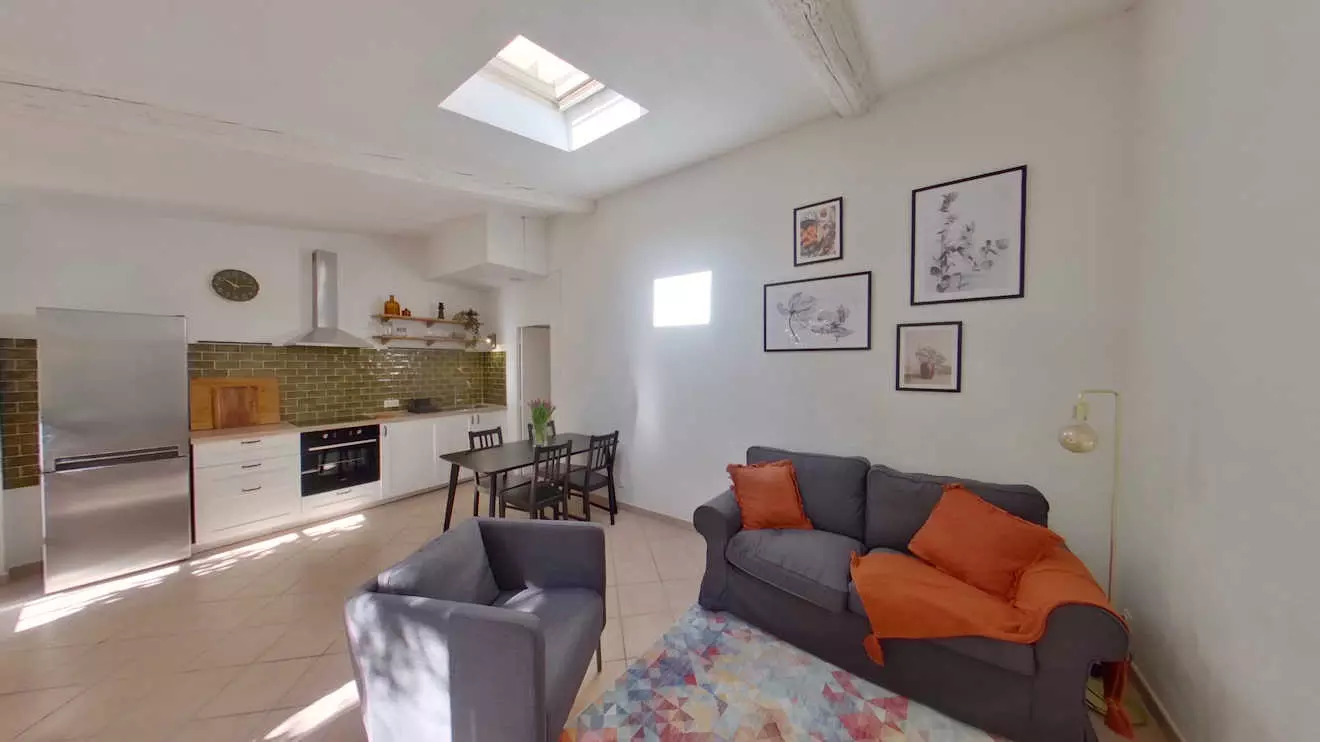
La Cour is a newly renovated long term rentals property overlooking a private courtyard in centre of the historic town of Pezenas in South France.
Pezenas is one of the most beautiful towns in the South of France and it features a vibrant arts and theatre scene, popular weekly market and a large Antiques sector. This long term rental apartment is perfectly situated just 1 minute walk to the shops, restaurants and the Saturday market. The property is ideal for a couple or a single person. Available for 6 to 12 month rentals.
The property comes with:
- 1 double bedroom
- 1 bathroom
- Courtyard
- Good WIFI connection
- Large living room
- Parking nearby
The apartment is available for long term rentals throughout the year from €650 per month + bills. Available from January 2025 for rentals of 6-12 months.
Artist Apartment - Pezenas South France rentals long term Ref: 985
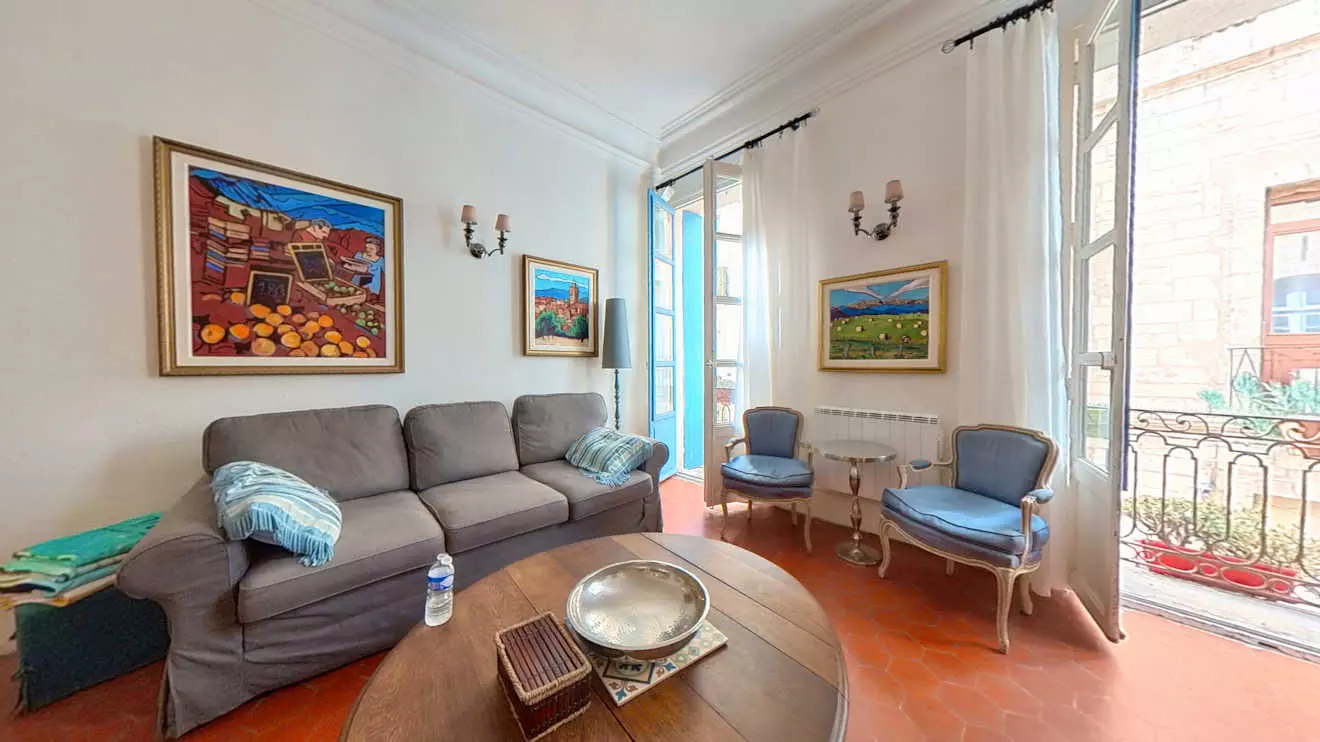
A bright and airy 2 bed apartment in the centre of Pezenas, one of the most beautiful towns in the South of France. On your doorstep you have access to dozens of restaurants, shops and local services. Good public transport network to Montpellier, Beziers and the coast.
Location: Pezenas, South France. Beziers 30 mins, Montpellier 40 mins, Mediterranean coast is 25 mins.
Key features: 2 bedrooms, 1 bathroom, large living room, balcony, fast internet.
Best feature: located in Pezenas town centre with easy access to shops, restaurants and the fabulous weekly market. The apartment is well-equipped.
Price: from €800 per month + bills (monthly provision of €200)
Minimum rental period: 6 months
Available from: 1 January 2024
Sunny apartment long term rental Pezenas South France Ref 1921
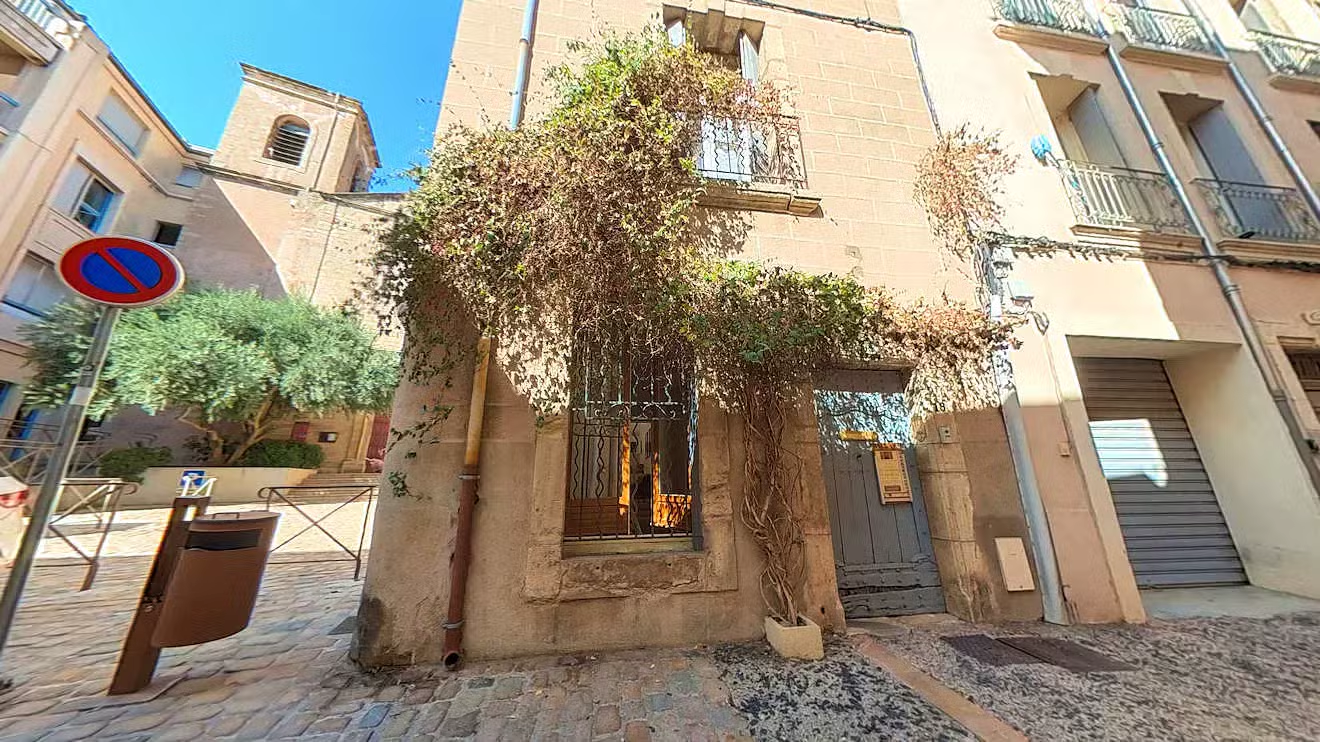
Pezenas is one of the most beautiful towns in the South of France and it features a vibrant arts and theatre scene, popular weekly market and a large Antiques sector. This long term rental apartment is perfectly situated just 1 minute walk to the shops, restaurants and the Saturday market. The property is ideal for a couple or a single person. Available for 3 to 12 month rentals.
- 1 bedrooms
- 1 bathroom
- Bright and airy living room
- Fast Wifi throughout
- Washing machine
- Kitchen
- 1 min walk into Pezenas town centre
This apartment for long term rentals is situated on a lovely square near the town centre of Pezenas. The apartment is available for long term rentals throughout the year from €550 per month + bills.
Long term rentals near Beziers France

Beziers is located close to the Mediterranean coast, in between Provence and Spain. In terms of a location for annual long term rentals in France, Beziers has everything going for it. It is just 10km from the Mediterranean coast. It has a great transport network. It has over 2,000 years of history and it is quickly regenerating itself for the 21st Century.
The countryside around Beziers is glorious . If you are looking for peace and tranquillity then the Languedoc Regional Park about 45mins from Beziers is a good choice. There are some excellent walking trails and cycling routes. Beziers is also home to some of the best vineyards in the South of France - such as Faugeres and St Chinian.
These 3 rental properties located in villages close to Beziers are available for rentals for up to 12 months:
3 bed villa with pool for long term rent in Puimisson, South France (Ref: 1923)
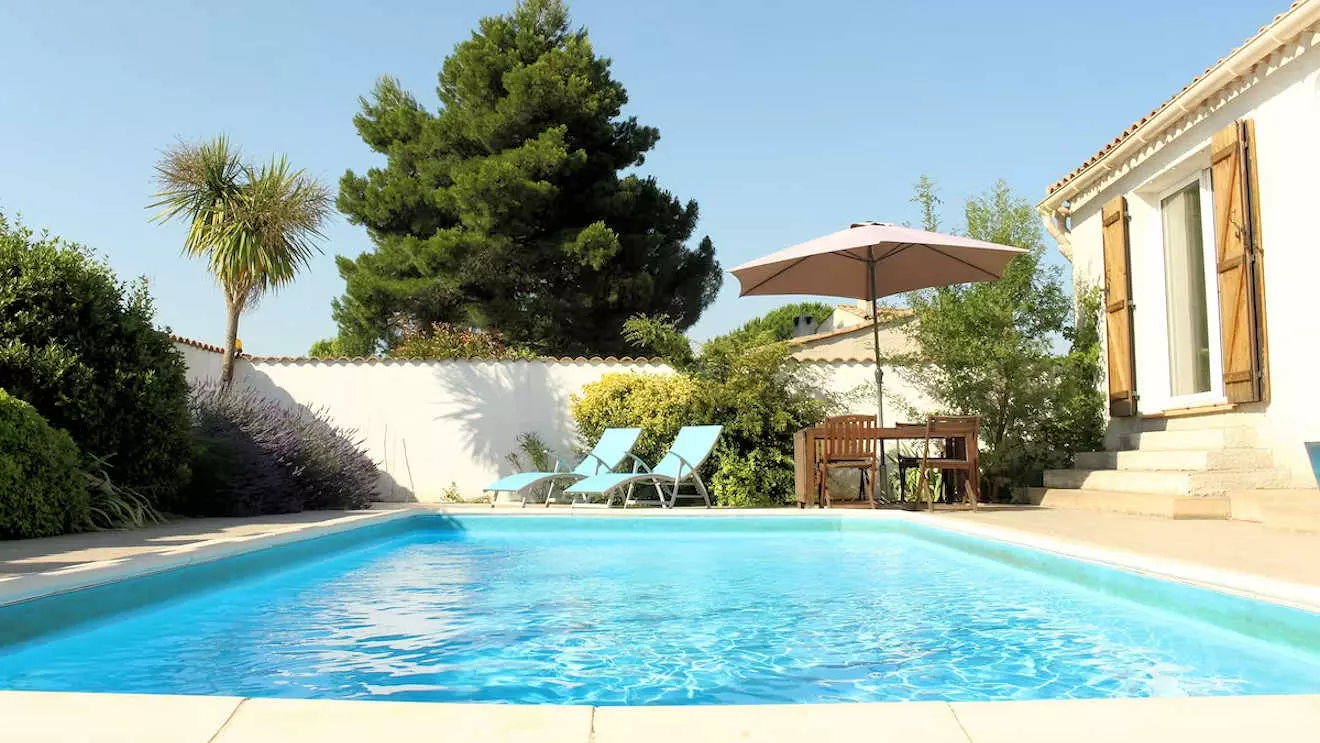
This 3 bedroom villa with private pool is located on the edge of the medieval village of Puimisson in South France. The village of Puimisson dates back over 1,000 years and provides easy access to Beziers (for the airport and TGV), as well as the Mediterranean beaches (20-25 mins). This villa for long term rent comes with a private pool, parking and is located in a quiet neighbourhood. Ideal for families or couples expecting frequent guests.
The villa features:
- 3 bedrooms
- 1 bathroom
- Private pool
- Parking
- Fully fitted kitchen
- Light and airy interior
- TV and internet connection
Available for 12 month rentals from October 2024 from €1350 per month + bills.
Lespignan house for long term rentals, France, near beaches Ref: 569
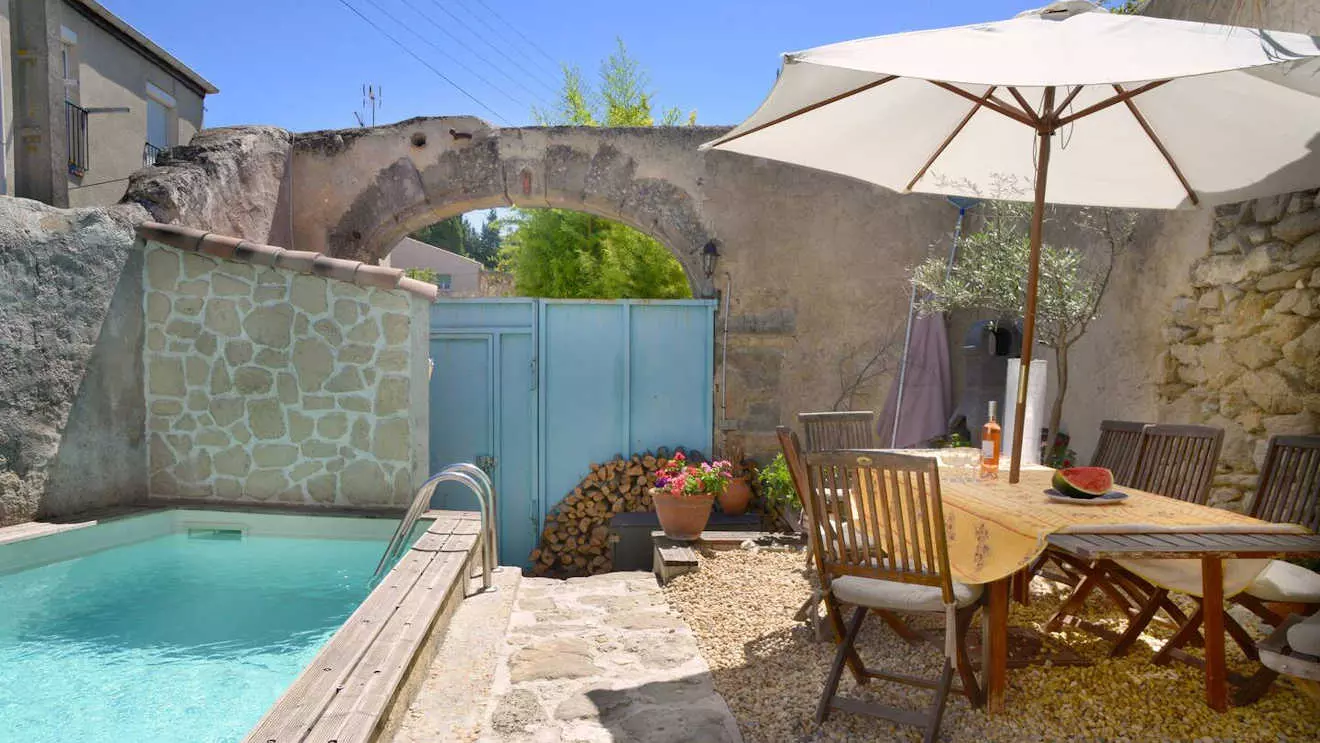
This lovely house in Lespignan, near Beziers and the Languedoc coast, is a very convenient long term rentals property in France. The house has been renovated from a former wine cave and the results are dramatic. The house is close to the Mediterranean coast, it comes with its own swimming pool, and provides spacious accommodation all year round. Lespignan is situated close to Beziers and is just 10 minutes from the beach.
This house in Lespignan, South France, is located within 50 minutes of 5 budget airports and is situated close to the A9 autoroute. There are TGV train stations at nearby Beziers and Narbonne.
The house features:
- 4 bedrooms
- 2 bathrooms
- Swimming pool
- Private garden
- Fully fitted kitchen
- Exposed beams and stonework
- Private parking
This house is available for long term rentals between September to June from €1000 per month + bills. All year around from 1300€ per month.
Rue du Porche cosy cottage to rent long term South France (Ref: 2114)
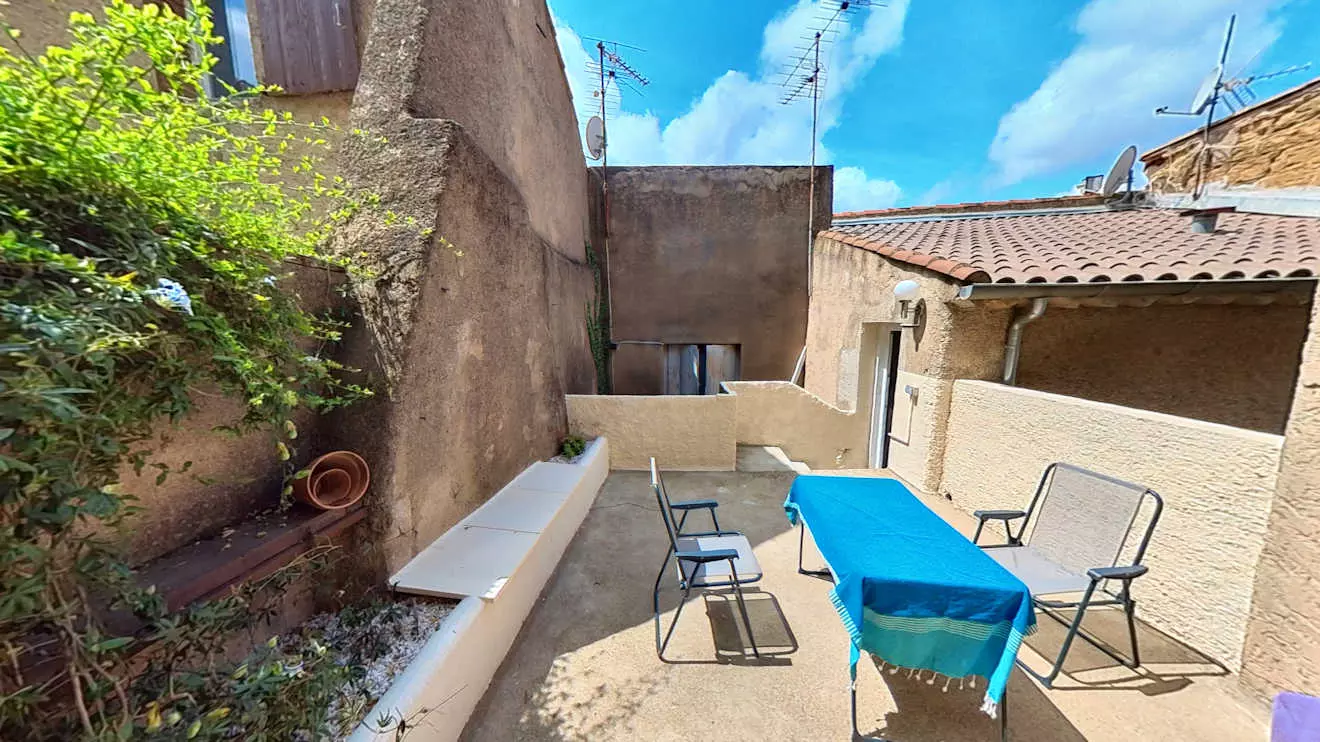
This 1 bedroom cottage is an ideal long term rental property for a single person or a couple. Located right in the heart of the village of Servian, near to Pezenas. The cottage is a quick walk to restaurants, shops, bars, a sports centre (with swimming pool), schools and a large supermarket. The cottage comes with a fabulous private roof terrace and a good sized living room.
There are 2 car parks close by and it is an easy walk to restaurants, shops and services. Within 2 minutes of leaving your front door, you can be out amongst the vineyards. The cottage can be rented for 6-12 months from €550 per month + bills.
- 1 bedrooms
- 1 bathrooms
- Well-equipped kitchen
- Roof terrace
- Wi-Fi internet
- Close to restaurants and shop
- Parking nearby
This house is available to rent for 6-12 months. The guide rental price is €550 per month + bills.
Carcassonne houses for 12 month rentals

The picturesque town of Carcassonne is located in the Aude department in Southern France. It lies in between the Mediterranean coast, the city of Toulouse and the Pyrenees Mountains to the south. Carcassonne has everything you need as a base for a long stay in France - great transport links, good shops, excellent restaurants and of course the most magnificent castle in France.
The landscape around Carcassonne is quite varied. The Black Mountains are situated above Carcassonne and here you will find some lovely rural villages like Villardonnel, Saissac and Siran.
Carcassonne has excellent transport links. The A61 motorway runs right past the town and connects Narbonne in the east with Toulouse and Bordeaux in the west. itself has its own airport - serviced mainly by low-cost flights from the UK and Scandinavia.
There is a train station in the centre of Carcassonne, where you can pick up train services to both Narbonne and Toulouse. There are connecting TGV trains to Paris, Bordeaux, Marseille and Barcelona. Carcassonne has an international airport with many low cost Ryanair flights to Dublin, Ireland; Glasgow, Edinburgh, East Midlands, Manchester and London, UK; and Brussels, Belgium.
These 3 rental properties are located close to Carcassonne and are all available for rentals :
Siran house to rent in France long term, sleeps 4 (Ref: 1632)
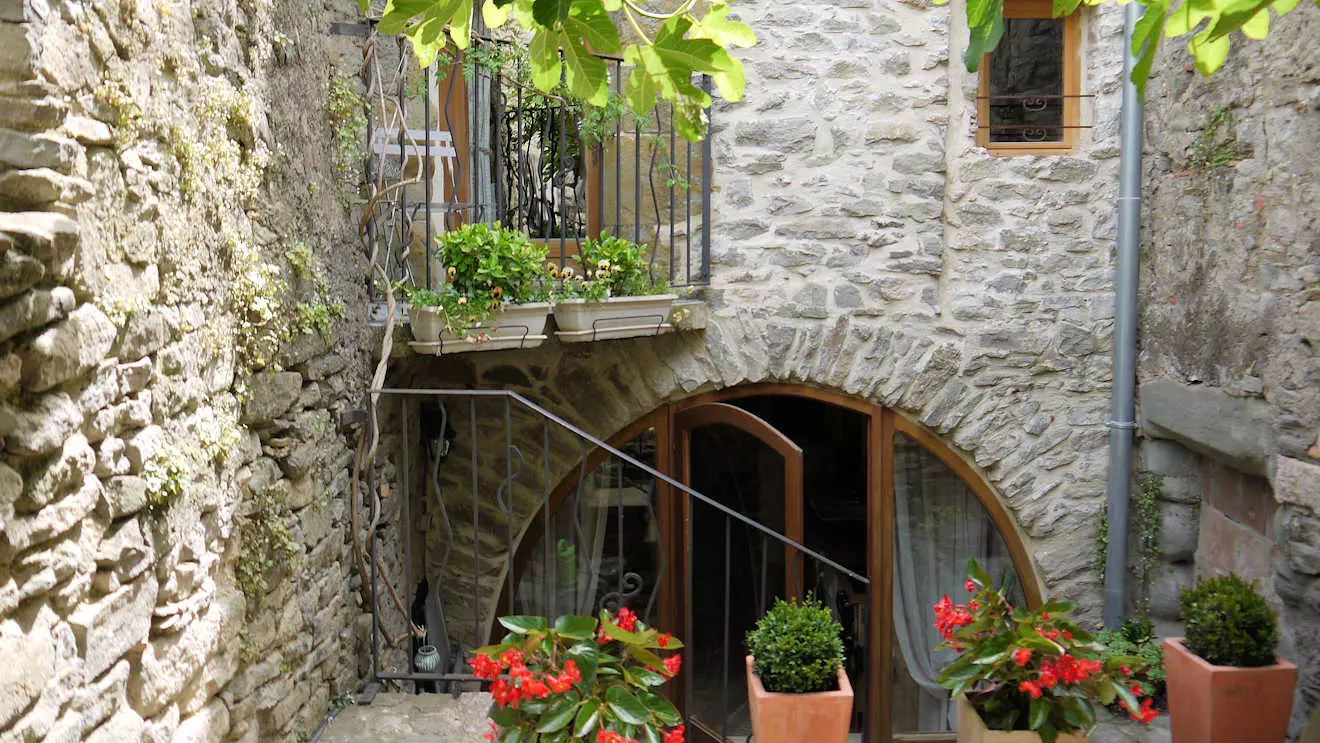
Siran is located in the heart of the Minervois wine region, producing some of the best wines in Southern France. The house is located on a quiet street in the medieval heart of Siran, a beautiful village close to Carcassonne. This well-equipped village has a bar, bistro restaurant, school, shop and library. The property comes with a beautiful cottage garden, 2 bedrooms, large lounge and kitchen-diner. The house comes with:
- 2 bedrooms
- 1 bathroom
- Well-equipped kitchen
- Enclosed garden
- Available for 3-12 month rentals
- Good Wifi connection and satellite TV
This lovely house in the Siran, France, is available for long term rentals from 3-12 months. The monthly rental price starts at €750 pcm + bills.
Carcassonne cottage to rent in France long term (Ref: 1117)
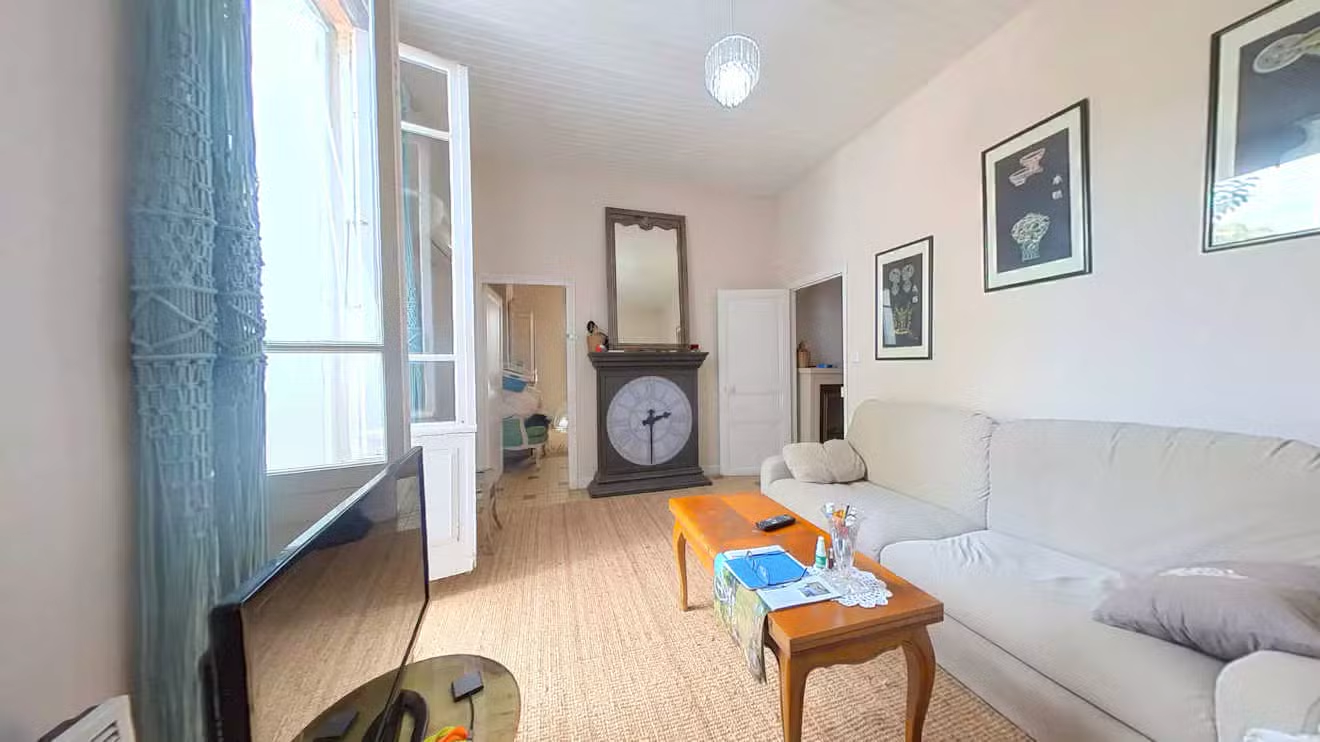
A cute ground floor 2 bed cottage for annual rentals near the centre of Carcassonne, one of the most beautiful towns in the South of France. The impressive Carcassonne Castle is one of the most visited sites in France and a key attraction for the city. The apartment also comes with a large terrace and there is free parking just outside the apartment.
Location: Carcassonne, South France. Toulouse 1 hour, Mediterranean coast is 45 mins.
Key features: 2 bedrooms, 1 bathroom, comfortable living room, fast internet.
Best feature: the Canal du Midi is opposite the apartment and this provides a pleasant walk into Carcassonne or out into the countryside. Carcassonne has a train station and an international airport.
Price: from €900 per month + bills (monthly provision of €200)
Minimum rental period: 6 months
Available from: 1 January 2025
Camon - cottage for long term rent near Mirepoix South France (Ref: 2146)
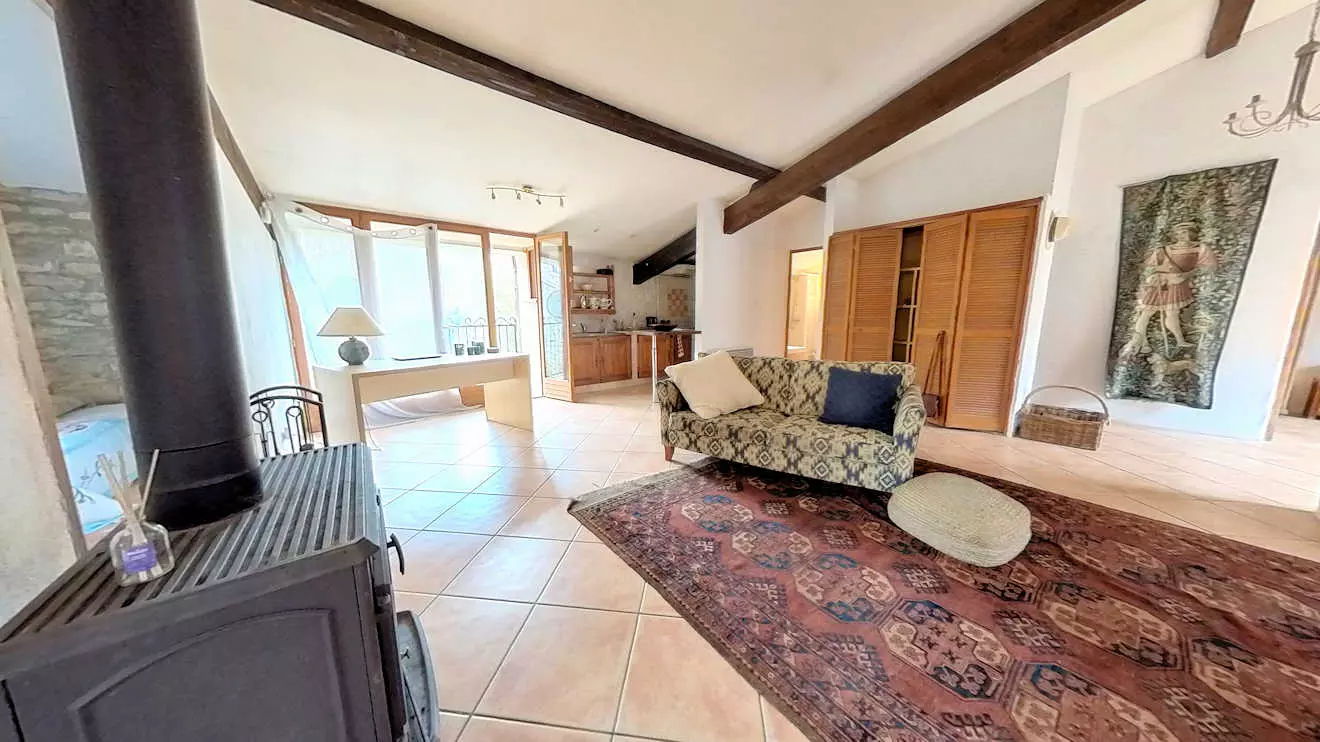
If you are looking for total peace and quiet in a beautiful corner of France, then this cottage for long term rent in Camon is absolutely ideal. Camon is one of the most picturesque villages in France and the stunning small town of Mirepoix is just up the road (both places are on the official list of the 160 'Most beautiful villages in France').
This 2 bed stone cottage for long term rent is located close to Mirepoix, in the foothills of the Pyrenees in Southern France. The cottage is a converted barn located on the outskirts of the village of Camon, one of the most beautiful villages in France. In the village there are 2 restaurants (one of which also doubles as a bakery and local cafe-bar). The local countryside is very picturesque - ideal for walkers and cyclists.
Inside, the cottage features high ceilings with exposed beams and original stone walls. The cottage also comes with parking, Wi-Fi and a large wood burner. Grazing land is also available for guests with horses (and stables can be found nearby).
This cottage is available for long term rentals from €750 per month + bills. Pets may be accepted through prior agreement.
Maison de la Place 2 bed house to rent long term Siran South France (Ref: 2169)
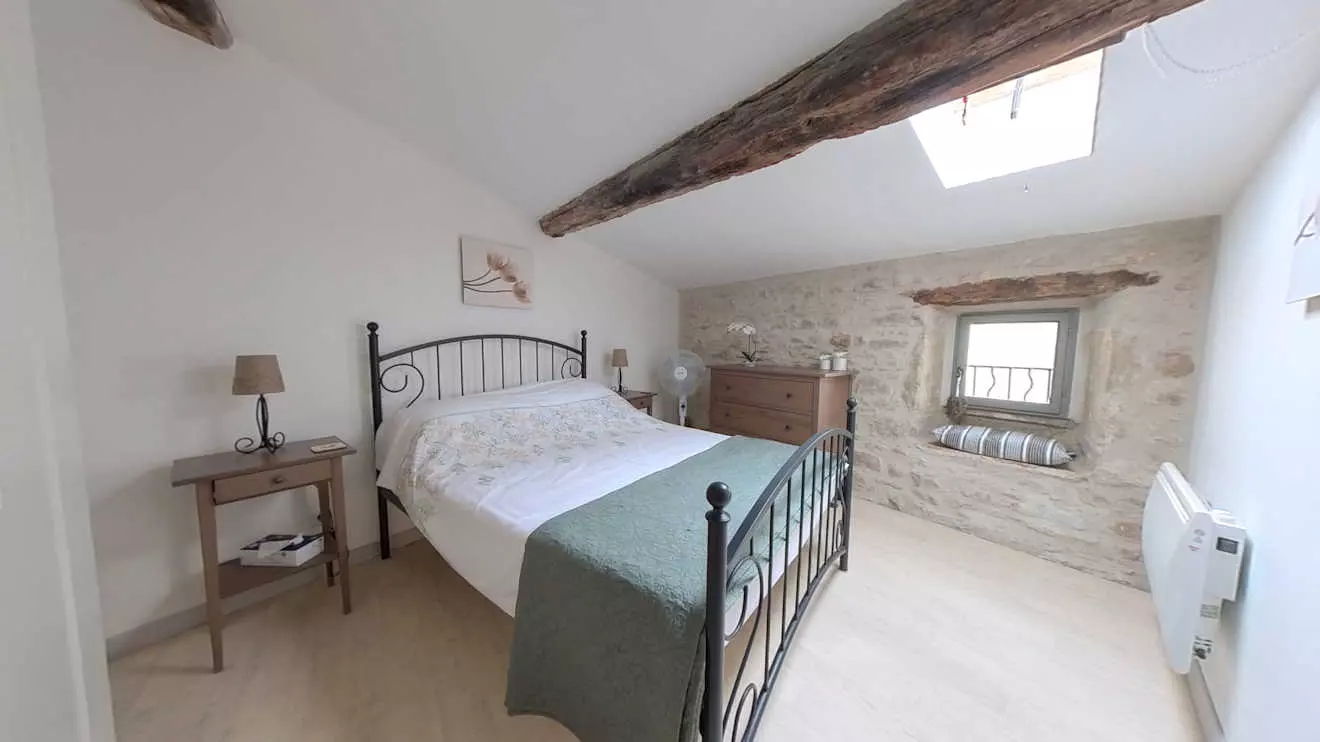
Siran is located in the heart of the Minervois wine region, producing some of the best wines in Southern France. The house is located on a quiet square in the heart of this medieval village, close to Carcassonne and Narbonne. This well-equipped village has a bar, bistro restaurant, school, shop and library. This beautiful property has plenty of charm with exposed beams and stone walls. The property comes with 2 bedrooms, a large open plan lounge, a gargae, 2 bathrooms, air conditioning and a good speed Wi-Fi. The house features:
- 2 bedrooms
- 2 bathrooms
- Air conditioning
- Well-equipped kitchen
- Garage
- Available for 12 month rentals
- Good Wifi connection and satellite TV
This lovely house in the Siran, France, is available for long term rentals of up to 12 months. The house can be rented from €750 per month + bills..
Perpignan annual rental properties
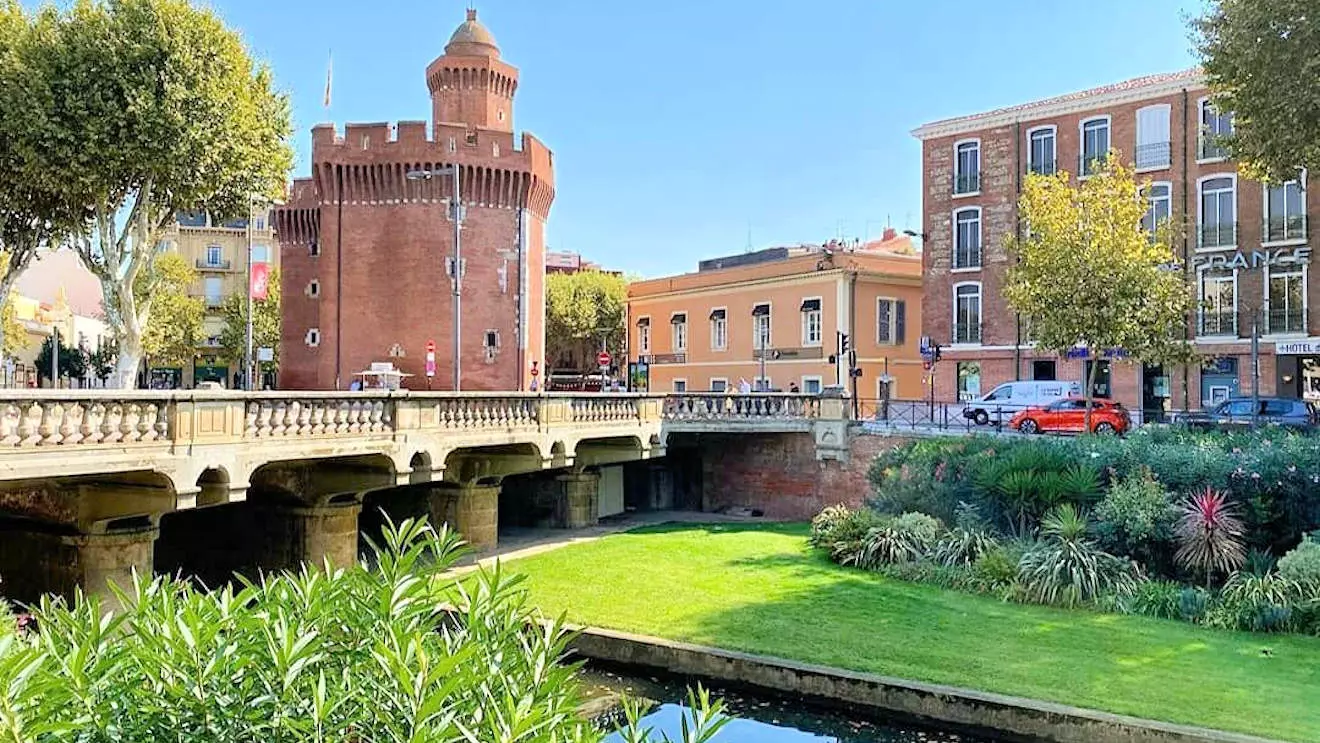
Perpignan is situated in between the Mediterranean coast and the Pyrenees, close to the Spanish border. It is the Southern-most city in France. With it's mild winters and long hot summers, it is the perfect destination for an annual rental in France. The city is the capital of Roussillon and it has a real Spanish feel to it. The old narrow streets towards the Palais des Rois de Majorque are a real pleasure to walk around. Near to Perpignan you will find an amazing coastline, it has an excellent transport network and it provides easy access to Barcelona, the ski resorts in the Pyrenees and the Cathar castles in the Corbieres hills.
These 4 properties close to Perpignan are currently available and will rent for 12 months (including over the summer period):
Casa Baléares - coastal villa for long term rentals Southern France (Ref: 2029)
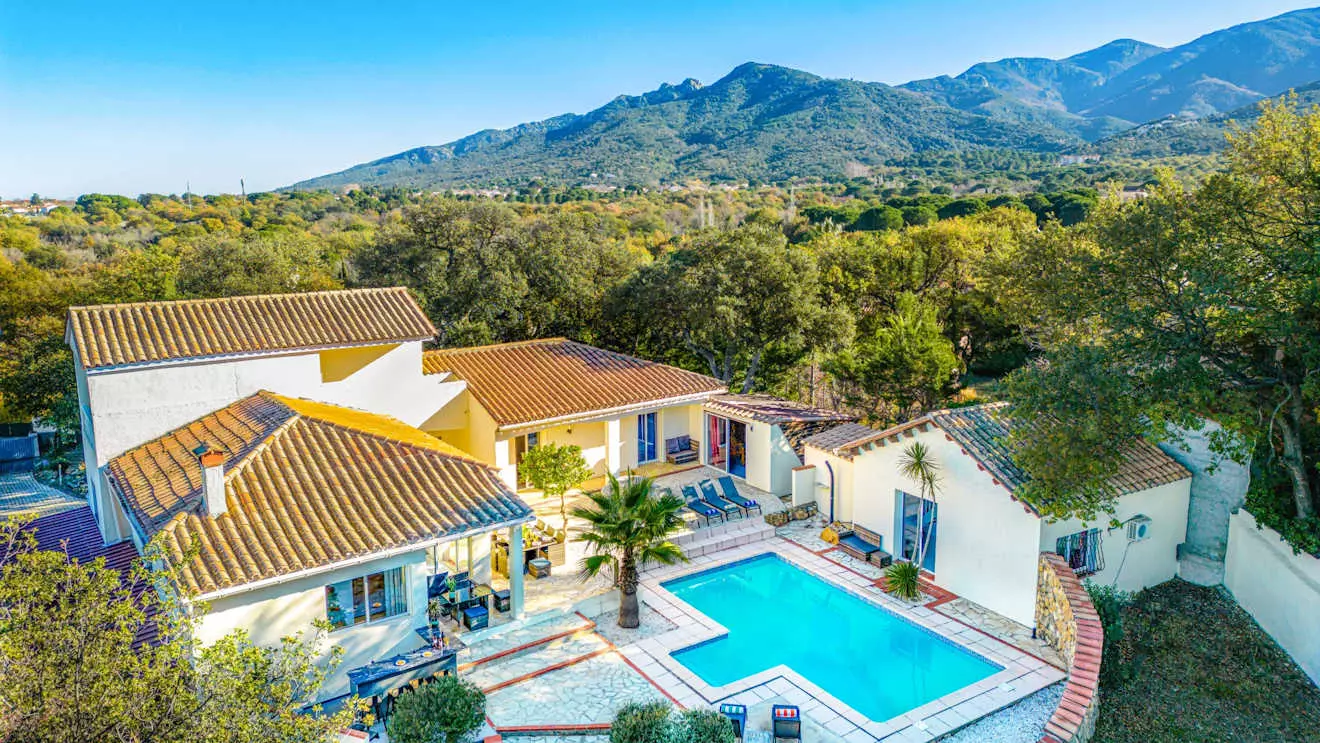
Casa Baleares is a lovely 4 bedroom villa with private pool, set set in the foothills of the Pyrenees just 15 minutes drive to the Mediterranean coast and the beaches at Argeles-sur-Mer, Saint Cyprien and Collioure. A short walk takes you into the centre of the sought-after village of Laroque des Alberes, with all the shops and restaurants that you will need. Perpignan is just 20kms to the North and the Spanish border is just 15 mins away.
The villa is located in a quiet residential on a large plot of 2,800m2 plot. This long term rental villa comes with 4 bedrooms, 4 bathrooms, a well-equipped kitchen, spacious lounge and lovely views. The pool house also has the possibility of being used as a home office.
Laroque des Alberes is located on the coastal plain, in the foothills of the Pyrenees. From the village there are beautiful views. Laroque des Alberes is a 15 minute drive to Mediterranean beaches (at Collioure and Argeles sur Mer) and provides easy access to Perpignan and Spain. The surrounding area has some beautiful walking and cycling routes in the mountains.
The villa is available to rent on a monthly basis between October to May from €2,000 per month + bills. Annual 12 month rentals are available from €2750 per month. The villa is currently available from October 2024.
Perpignan long term rent apartment, France (Ref: 1324)
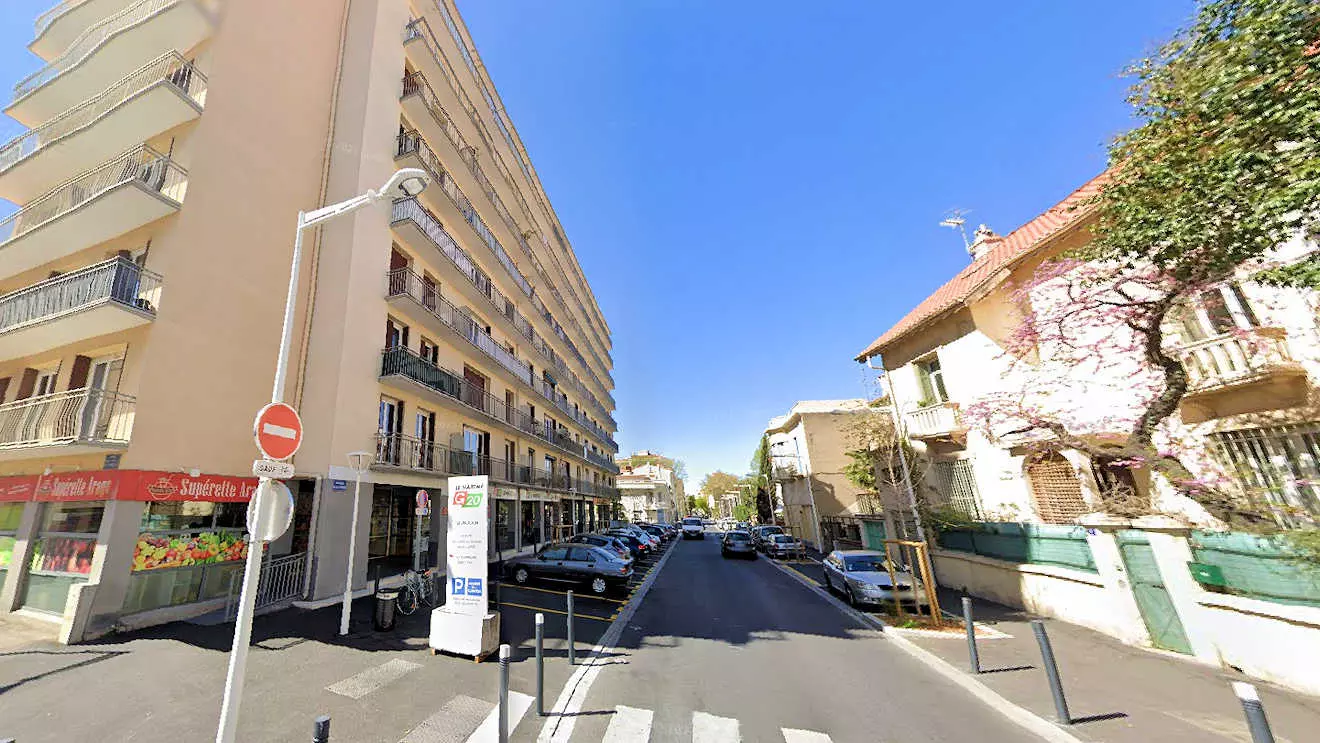
This Perpignan apartment to rent long term in France is located close to the centre of town, just 5 mins walk to the train station and bus station. The apartment is located on the 5th floor of a 1950s apartment building. The apartment is close to local shops, restaurants and services. This Perpignan apartment for long term rentals benefits from the following:
- 2 balconies
- Private parking space in the underground car park
- Local supermarket just next door to apartment building
- Central heating
- WiFi and TV
- Bright and clean interior with contemporary furniture
This Perpignan apartment is available for long term rentals from January 2023 for 3-12 months. The monthly rental price is €800 pcm + bills.
Southern France villa for long lets (Ref: 1240)
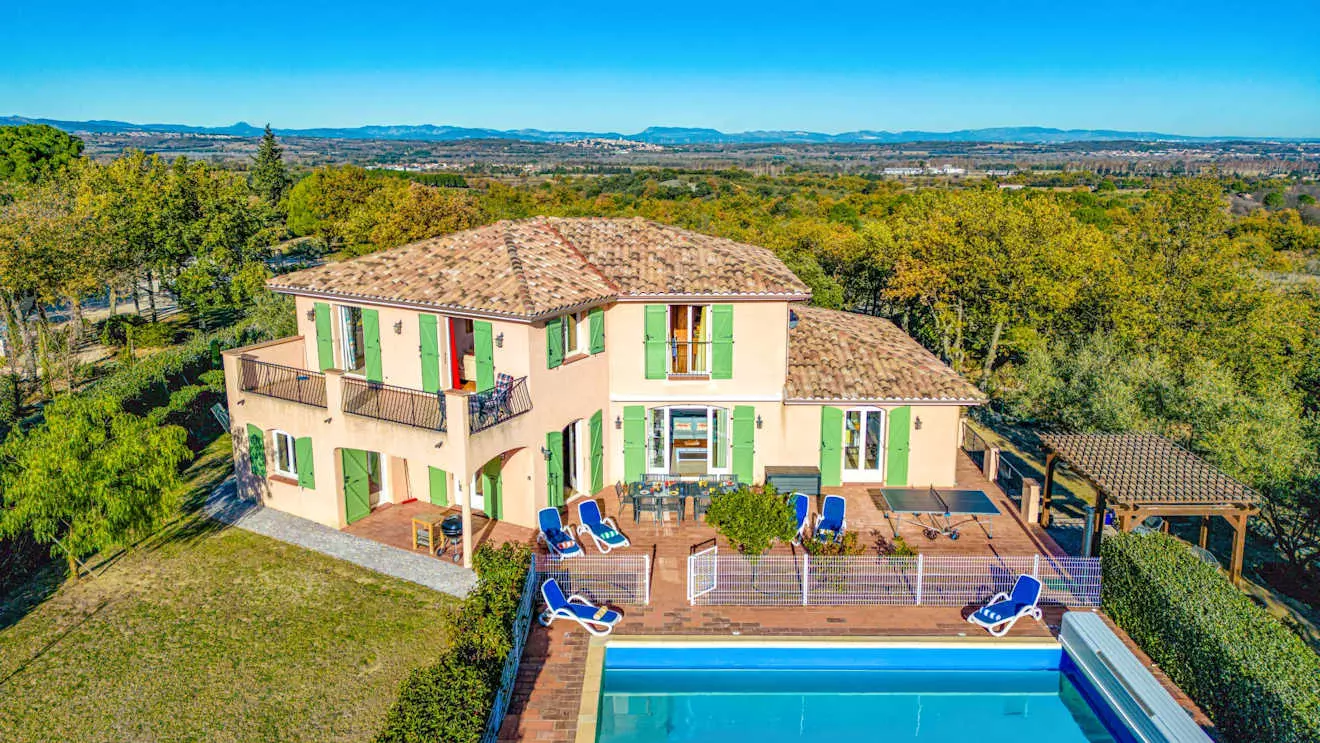
This Southern France villa for long winter lets is at the edge of the small village of Villelongue-dels-Monts in its own private grounds. Approached from a private track the property has ample parking for a number of vehicles. The villa enjoys splendid views over the nearby village and on towards the foothills of the Pyrenees and the Mediterranean coastline in the distance. This villa for winter lets in France is the perfect retreat for a large family group or crowd of friends looking for a very special property in a rural location. The villa features:
- 5 double bedrooms
- 3 bathrooms
- Air conditioning in all bedrooms
- Spacious living room
- Large private pool (fenced).
- Large garden
- Stunning mountain views
- Private parking for several cars
This villa to rent near Perpignan, France, is available for long term rentals from October 2024. The house can be rented for 3-6 months and the Owners will also consider 12 month rental periods as well. The monthly rent will vary according to the length of the rental period and the season (from €1850 to €2500 pcm).
Le Rameur - beautiful town house to rent in France by the coast (Ref: 2027)
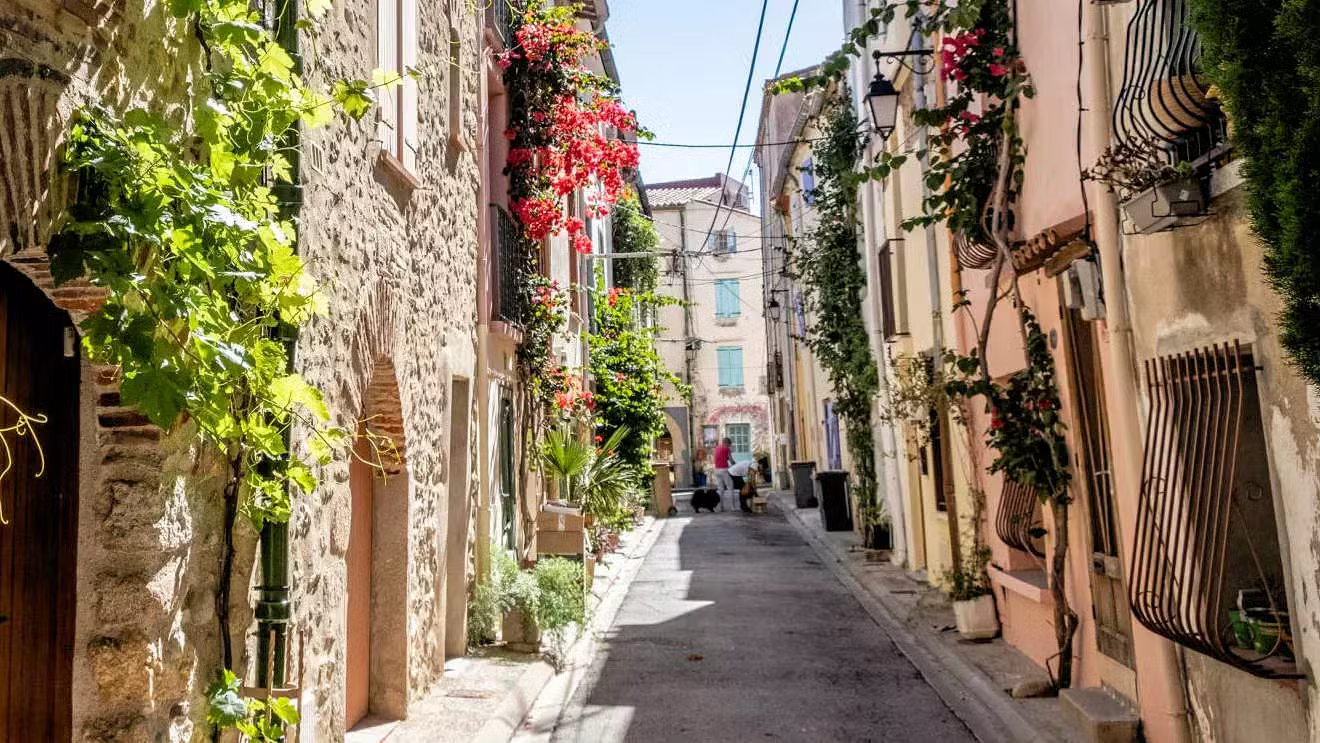
Le Rameur is a beautiful town house for long term rent set in the heart of the coastal town of Argeles-sur-Mer, in Southern France. Argeles-sur-Mer is situated close to Perpignan on the Mediterranean coast, near the Spanish border.
The house is situated in the most photographed street in this famous Catalan town, popular for its many shades of Bougainvillea plants.
Le Rameur boasts a lovely roof top terrace and has been fully renovated to a very high standard. The house has three double bedrooms, 2 bathrooms, two new kitchens, air conditioning and WiFi Internet. The house also comes equipped with 3 mountain bikes, body surf boards, snorkel and masks.
The villa features:
- 3 double bedrooms
- 2 bathrooms
- Air conditioning
- Spacious living room
- Large roof terrace
This villa to rent near Perpignan, France, is available for long term rentals from October 2024. The house can be rented for 3-6 months and the Owners will also consider 12 month rental periods as well. The monthly rent will vary according to the length of the rental period and the season (from €1100 to €1400 pcm).
Thinking of moving to France ?
If you are planning on moving to France, then the following articles provide more information on aplying for a long stay visa for France, retiring in France, opening a bank account, setting up health care in France and the best regions in France to live.
There are 4 main criteria that you must meet on your French Residency application, but the most important on is that you have sufficient financial resources to support yourself in France.
|
France regularly features in the Top 10 list of the best countries to move to. Here we analyse where are the 10 best regions to live, work and retire in France. |
If you are planning on moving to France and to live here for more than 3 months at a time, then it is a legal requirement for you to have health insurance in place.
| How to open a bank account in France One of the first jobs that you need to do when you are moving to France is to open a French bank account. Everything in France is linked to having a French bank account.
|
Discover how much money you will need to budget for moving to France and the general cost of living in France in 2024.
|
Discover how much it will cost to rent a house or apartment in France long term. These are the average house rental prices in France for a long term rentals for 2024.
|
Contact Iain by Email if you have any particular questions you would like to ask about living in the South of France.


















